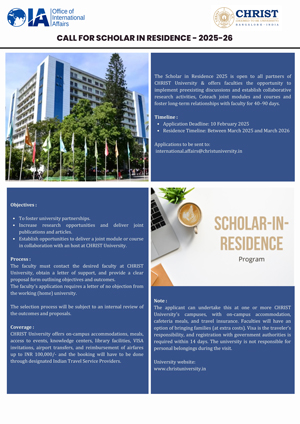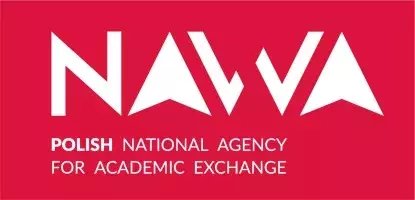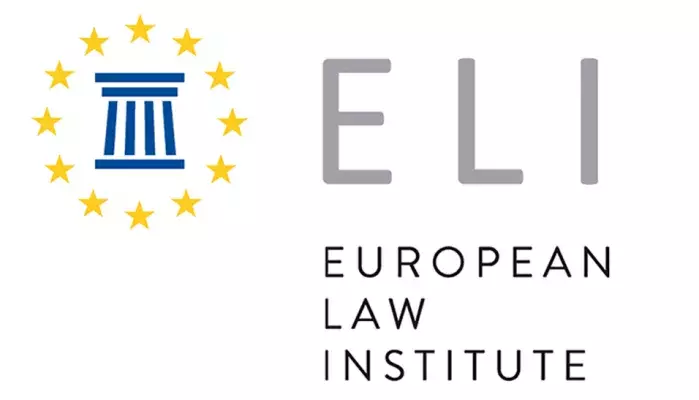CALL FOR PAPERS and other offers of International Cooperation
Order of offers: by deadline date: from the longest (top) to the shortest (bottom).
Latest update: February 2.2026.
Edited by: Assoc. Prof. Dr. habil. Marcin M. Wiszowaty, Dr. Agnieszka Tuszkowska.
Please send offers of international academic cooperation in the field of legal sciences to: international@prawo.ug.edu.pl - Thank you !
AI in Research 2026: Tools, Tips, and EU Rules
online seminar
We cordially invite you to new online seminar for researchers based in the EU & Switzerland, on 11th of Feb, on the topic of: AI in Research 2026: Tools, Tips, and EU Rules
The session covers new ways to use AI for literature reviews, reading papers, writing processes, and data analysis. The seminar also covers reducing AI mistakes with better source checking and accurate references.
The seminar's speaker is Abderisak Adam, PhD researcher and research coordinator at Avidnote, a digital platform for researchers. If you are interested in participating, register via the following link:
Registration here:
There is an alternative date for those that cannot join at the date.
Abderisak Adam, PhD
Research coordinator at Avidnote

International School of Finance, Technology and Science (ISFT Institute), in cooperation with the Ministry of Higher Education, Science and Innovation of the Republic of Uzbekistan and the Science and Innovation International Scientific Journal, is organizing an International Scientific-Practical Conference entitled:
“Topical Issues of Achieving Sustainable Economic Growth through Enhancing the Effectiveness of Intersectoral Integration in the New Uzbekistan”
📅 Date: 27 February 2026
📍 Venue: ISFT Institute, Samarkand Branch, Samarkand, Uzbekistan
🖥 Format: Hybrid (online and offline)
🌐 Working languages: Uzbek, English, Russian
We cordially invite your university’s academic staff, researchers, and doctoral students to participate in this international conference either on-site or online.
Participants may take part in the conference by:
- presenting a paper,
- delivering an online or in-person speech, or
- submitting a scientific article for publication.
Articles accepted for the conference will be indexed in international databases including CyberLeninka, Index Copernicus, EuroPub, Zenodo, OpenAire, and Google Scholar, and each article will be assigned a DOI number.
Kindly note that participants from partner universities are exempt from the participation fee.
If representatives of your institution wish to:
submit an article, or participate with a presentation (online or offline),
they are kindly requested to inform the International Cooperation Department of ISFT Institute in advance by email. We will then officially forward the information to our Scientific Department for registration and coordination.
Kindly find attached the Information Letter with detailed information about the upcoming conference.
📧 Contact email: international@isft.uz
Azizbek Alisherov
Head of the International Cooperation Department
International School of Finance Technology and Science (ISFT Institute, Samarkand Branch)
📧 international_r@isft.uz | 🌐 web site
XXI Annual Conference of The European Society of International Law
Facultad de Derecho, Bulevar Louis Pasteur, Málaga, España
CfP Annual Conference
The international legal order is facing a systemic crisis. Several factors may explain this current crisis, including the rejection of multilateral institutions by some states and the rising phenomenon of political polarisation. States and existing multilateral institutions seem ill-equipped to respond to the challenges posed by states and non-state actors, which instrumentalise different international law sources and procedures for their own purposes. These challenges enter in conflict with doctrine and classic international law concepts such as sovereignty, jurisdiction and responsibility. Even if the peaceful resolution of controversies remains at the core of the nature of international law, conflict still remains at the heart of the international legal order.
Additionally, growing intolerance and political extremes have resulted in ideological confrontation that has not been seen in decades. Though these polarising tendencies are rooted in domestic problems, the question arises about whether they also give rise to conflict on the international plane. States have shown to be ever more reluctant to comply with international norms within their domestic legal systems and seem to be narrowing the interpretation of their international law obligations. Conflict makes states more prone to confrontational relations instead of diplomacy, with actors taking advantage of their weight in order to serve their own interests instead of collaborating for the common interest. Concepts such as common goods or even the controversial notion of ‘lawfare’ are highly malleable and easily subject to manipulation, with a potentially negative effect on individual rights and multilateral institutions.
In the same vein, recent years have seen a worrying increase in the number of the most heinous crimes, as evidenced by the three genocide cases pending before the International Court of Justice in the space of five years, along with war crimes and crimes against humanity. The world appears to be in a state of turmoil. The most recent international armed conflicts highlight the need for adequate monitoring of the application of international law.
An atmosphere of conflict also has an obvious negative effect also on economic and trade relations. This is clearly demonstrated with the blockage of the WTO Appellate Body, continuous controversies with China, and economic sanctions on certain states.
In conclusion, we are at a crucial juncture. The task of revisiting the notion of conflict – conceived in its broadest sense – and its implications for the international legal order are urgent. It is essential to ensure the effective application of international law in order to achieve the ideal of justice for states, peoples and individuals. Accordingly, the theme of the ESIL Annual Conference is: "International Law and conflict: an enduring tension?".
ESIL invites innovative paper proposals concerning one of the Agora themes:
Agora 1 – Political Narratives and Critiques about International Law and Institutions
Agora 2 – The impact of political polarization on human rights law and mechanisms
Agora 3 - Economic conflicts in a fractured global order
Agora 4 – Strategic materials and conflicts: strategic natural resources and geographical tensions
Agora 5 – Reassessing International Humanitarian Law for new and ongoing armed conflicts
Agora 6 – International, hybrid and domestic courts and the accountability for heinous, serious and grave crimes in conflict zones
Agora 7 – Reimagining conflict in the digital era
Agora 8: International Law and Domestic Legal Orders at the Time of Tensions
Agora 9 – Open for submissions of interest groups
Agora 10 - Open for submissions of interest groups/late breaking panel/other initiatives
• The deadline for submission of abstracts is 31 January 2026.
• Successful applicants will be informed no later than 31 March 2026.
• Deadline for joining ESIL (applicable for non-members) is 30 April 2026.
• The deadline for submission of full papers is 1 July 2026.
• The conference runs from 3-5 September 2026.
• The deadline for (optional) submission of final papers (to be included in the ESIL Proceedings and/ or a future conference publication) is 1 November 2026.
Information to be Included
Proposals must be submitted online via the conference website http://eventos.uma.es/go/ESIL2026 The website features an online tool which will be used for the selection process and through which all communication between the organizers and applicants will take place.
ESIL Interest Groups are invited to submit proposals for agorae. Such proposals must be submitted by Interest Group conveners via the conference website by 31 January 2026.
6th Current Issues in Business and Economic Studies (CIBES) Conference,
to be held on June 25–27, 2026, at the University of Valencia, Spain.
This year’s event offers both in-person and online participation options to accommodate our global academic community.
5 Jan 2026 is the last date for too early registration
If you are planning to submit an abstract for the conference, please contact us today to request a one-week extension for abstract submission in order to qualify for too early registration. Today is the final day to do so.
Why Attend CIBES?
1. Publish in High-Impact Outlets
Selected papers will be considered for publication in SSCI, ESCI, and Scopus-indexed journals, including opportunities with Springer Proceedings in Business and Economics, Gender Issues, and many more journals. Additionally, we provide publication opportunities for other fields, such as economics, finance, accounting and sociology.
2. Strengthen Your Academic Profile
Presenting at CIBES allows you to showcase your research to an international audience - a valuable asset for academic promotions, job applications, and grant proposals.
3. Build Collaborations That Lead to Projects
Many participants form international research teams through CIBES, leading to joint publications, grant applications, and long-term academic partnerships via the CIBES Research Centre.
4. Gain Visibility Among Editors and Reviewers
Meet editors and reviewers from respected journals and publishing houses — a unique chance to receive direct feedback and insights that can improve your publishing success.
Keynote Speakers & Partners
Distinguished Keynotes: Previous speakers include esteemed scholars such as Prof. Brandon Randolph-Seng (Editor-in-Chief of Management Decision Journal-SSCI Index), Dr. Erhan Aydin (Editor-in-Chief at Gender Issues and Regional Editor at Journal of Organizational Change Management - SSCI Index) and Prof. Leo-Paul Dana, a Senior Professor with over 30,000 citations.
Institutional Support: CIBES has been proudly supported by leading institutions such as the University of Rome Tor Vergata (in 2024), Corvinus University of Budapest (in 2025), University of Valencia (in 2026) and the Turkish Academy of Management.
How to Participate
To submit your abstract, please email it to cibesconference@gmail.com.
For any inquiries, contact us at info@cibesconference.com.
Registration & More Information
For full details about the conference, registration process, and updates, please visit our official website: www.cibesconference.com
Call for Papers (Eberhard Karls University Tübingen):
Wartime Crisis Mode: Crime, Justice and Social Control in Armed Conflicts in Europe
Building on the 2025 edition «Wartime Crisis Mode: The Impact of Russia’s Aggression on the System of Social Control in Ukraine (Crime, Institutes, and Trust in Criminal Justice)», this expanded volume brings together scholars and practitioners to analyse how contemporary war reconfigures legal norms, disrupts judiciary and law enforcement, and creates new condition for criminal activity. This edited volume examines how armed conflicts impact criminal justice systems across multiple dimensions. It analyses the ways warfare destabilises economies, fractures political institutions, and erodes public trust in police, courts, prisons, and other core elements of national criminal justice systems.
While the main focus centers on Russian military action against Ukraine, this edition also welcomes academic submissions that analytically explore the broader ramifications of emerging security threats.
🚩 Abstract Submission Deadline: January 20, 2026
🚩 Paper Submission Deadline: May 20, 2026
🟢 You can find more information here: ⬇️
www.crime-war.info/2025/11/26/call-wartime

The University of Coimbra Institute for Legal Research (UCILeR) is organizing the III Legal SciComm Conference: Impact of Legal Research.
This conference, part of the Legal SciComm project, will be held on April 21, 2026, at the Colégio da Trindade (Faculty of Law, University of Coimbra), Portugal
This year, the conference focuses on exploring how legal research can create real-world impact.
This conference aims to bring together researchers and law practitioners to share their knowledge and experiences on legal communication. The call for papers is open to students (master's, doctoral, post-doctoral, post-graduate) and researchers. We also invite law practitioners (lawyers, magistrates, and others) to submit proposals to share practical experiences translating legal research into real-world legal applications. This year, we especially welcome papers on how law can be translated into practice, inform policy, empower communities, and/or influence the pursuit of rights and the construction of jurisprudence.
Topics of interest include:
• Communicating legal research to non-specialist audiences;
• Experiences in producing impactful legal research on society/public policy;
• Strategies to translate research into practice or policies;
• Innovative/Creative approaches to legal science communication.
Submission formats*:
• Scientific work
• Experience report
• Poster
*The scientific committee may suggest that the work fits in a different format.
Abstracts in Portuguese or English with up to 250 words should be submitted by 28 February 2026 to legalscicomm@ij.uc.pt
Participants will be notified of the selected proposals by 12 March 2026.
The authors could also submit full papers/experience reports in English for publication. After peer review, the accepted articles will be published in the Conference Proceedings. Upon publication, the proceedings will receive an eISBN and a DOI number.

ICCCJ 2026:
20. International Conference on Criminology and Criminal Justice
December 17-18, 2026 in Rome, Italy
The International Research Conference is a federated organization dedicated to bringing together a significant number of diverse scholarly events for presentation within the conference program. Events will run over a span of time during the conference depending on the number and length of the presentations. With its high quality, it provides an exceptional value for students, academics and industry researchers.
International Conference on Criminology and Criminal Justice aims to bring together leading academic scientists, researchers and research scholars to exchange and share their experiences and research results on all aspects of Criminology and Criminal Justice. It also provides a premier interdisciplinary platform for researchers, practitioners and educators to present and discuss the most recent innovations, trends, and concerns as well as practical challenges encountered and solutions adopted in the fields of Criminology and Criminal Justice.
Call for Contributions
Prospective authors are kindly encouraged to contribute to and help shape the conference through submissions of their research abstracts, papers and e-posters. Also, high quality research contributions describing original and unpublished results of conceptual, constructive, empirical, experimental, or theoretical work in all areas of Criminology and Criminal Justice are cordially invited for presentation at the conference. The conference solicits contributions of abstracts, papers and e-posters that address themes and topics of the conference, including figures, tables and references of novel research materials.
Guidelines for Authors
Please ensure your submission meets the conference's strict guidelines for accepting scholarly papers. Downloadable versions of the check list for Full-Text Papers and Abstract Papers.
Please refer to the Paper Submission Guideline, Abstract Submission Guideline and Author Information before submitting your paper.
Conference Proceedings
All submitted conference papers will be blind peer reviewed by three competent reviewers. The peer-reviewed conference proceedings are indexed in the Open Science Index, Google Scholar, Semantic Scholar, Zenedo, BASE, WorldCAT, Sherpa/RoMEO, and other index databases. Impact Factor Indicators.
Special Journal Issues
20. International Conference on Criminology and Criminal Justice has teamed up with the Special Journal Issue on Criminology and Criminal Justice. A number of selected high-impact full text papers will also be considered for the special journal issues. All submitted papers will have the opportunity to be considered for this Special Journal Issue. The paper selection will be carried out during the peer review process as well as at the conference presentation stage. Submitted papers must not be under consideration by any other journal or publication. The final decision for paper selection will be made based on peer review reports by the Guest Editors and the Editor-in-Chief jointly. Selected full-text papers will be published online free of charge.
Conference Sponsor and Exhibitor Opportunities
The Conference offers the opportunity to become a conference sponsor or exhibitor. To participate as a sponsor or exhibitor, please download and complete the Conference Sponsorship Request Form.
Application Forms
- Short Name: ICCCJ
- Event Type: Conference
- Presentation: Physical
- Website URL: https://waset.org/criminology-and-criminal-justice-conference-in-december-2026-in-rome
- Program URL: https://waset.org/conferences-in-december-2026-in-rome/program
- Contact URL: https://waset.org
- Location: Rome, Italy
- Date: December 13-14, 2026
- Final Submission: November 12, 2026
- Notification: December 08, 2025
- Organization: World Academy of Science, Engineering and Technology
16th Annual International Arbitration Conference // Annual Labour and Immigration Law Conference
Annual Insolvency Conference
25 to 27 June 2026
for a triple-conference of the International Arbitration Commission
Labour and Immigration Law Commission and the Insolvency Commission
Annual International Arbitration Conference – Limits and obstacles to arbitration
Many national courts in various jurisdictions across the globe are currently experiencing major backlogs when it comes to the average case processing time. Consequently, for many commercial entities, arbitration has become increasingly more appealing as a means of resolving disputes more swiftly. However, a party seeking to utilise this faster dispute resolution process may come across several impediments, such as the non-arbitrability of the claim, jurisdictional objections, or a subsequent challenge to the validity of the award.
The arbitration law track will discuss the applicability and accessibility of arbitration now and in the future, with focus on the issues of arbitrability, jurisdiction, and the possibility of setting aside arbitral awards.
Annual Labour and Immigration Law Conference – Latest trends in employment and immigration
The past years were defined by several global crises but also by the rise of new technologies opening up new horizons in the labour world.
The labour and immigration law track panels will offer a wide range of globally trending topics touching upon crisis situations and its management, digitalisation, globalisation, flexibility, arbitration in employment disputes, secrecy and many more.
Annual Insolvency Conference – Developments and trends shaping the future of insolvency and corporate rehabilitation
Recent years have been marked by multiple global crises and economic instability, elevating the importance of insolvency law as a framework for corporate restructuring and recovery.
Across the globe, there have been numerous advancements, enhancements, and harmonisation of legal frameworks, broadening the scope of tools and possibilities available within insolvency law. And it's not over yet! The European Commission has recently submitted to the Council and the European Parliament a new proposal for a Directive harmonising certain aspects of insolvency law, with other jurisdictions actively evolving their legal frameworks as well.
The insolvency law track will be an opportunity to explore the subjects addressed in those new proposal and developments with experts in the field, see how it currently works in practice in their jurisdictions and compare the status quo with what is coming up.
Join us to discuss trends and practical strategies that are shaping the future of insolvency and corporate rehabilitation.
Joint Sessions
During joint sessions on day two of the conference, we will identify how lawyers from the different fields of law contribute to consensus-focused solutions in complex, particularly crisis, situations to find a balanced outcome that is in the interest of all stakeholders.
more info: https://www.aija.org/event-detail/837
Call for Papers:
Workshop on The Role of the Causal Inquiry in Establishing State Responsibility in International Law Lund University,
28–29 May 2026
8 November 2025 12:00 | Workshop
Call for Papers
Workshop on The Role of the Causal Inquiry in Establishing State Responsibility in International Law
Lund University, 28–29 May 2026
Proposals should be submitted to both Conveners by email (vladislava.stoyanova@jur.lu.se ; iplakoke@pspa.uoa.gr) by 8 November 2025
Conveners: Vladislava Stoyanova - Lund University & Ilias Plakokefalos
Workshop Theme and Objectives
Causation—or the causal inquiry—is a fundamental yet understudied concept in international law. Despite its centrality in determining legal responsibility across domestic legal systems, international courts and tribunals have yet to develop a coherent approach to causation. The existing literature remains fragmented, often neglecting the conceptual and doctrinal challenges posed by causal reasoning in international legal disputes.
The main goal of the workshop is to identify the pertinent aspects of causation, or causal inquiry in international law. The idea is to present the various aspects of causation in international law as they appear in various particular issue areas. We have identified six issue areas: law of the sea, environmental law, refugee law, human rights law, law of armed conflict and international humanitarian law, and international trade and investment law. The differences between the law of armed conflict and international humanitarian law and between international trade and investment law are not, of course, negligible. But taking into consideration constraints of space we have made the tentative decision to group them together.
We therefore seek submissions for the following areas of international law:
- Human rights law
- Law of the sea
- Environmental law
- Refugee law
- Law of armed conflict / international humanitarian law
- International trade and investment law
By bringing together scholars and practitioners, the workshop aims to:
1. Map and analyze the causal tests employed by international courts and tribunals.
2. Explore the relationship between causation and related concepts (e.g., foreseeability, risk, prevention, reasonableness).
3. Investigate how causation shapes the existence, scope, and breach of obligations (e.g., due diligence, positive obligations).
4. Examine the interplay between causation, proof (burden and standards), and procedural admissibility rules.
The workshop will serve as the foundation for a special journal issue in the Journal of International Dispute Settlement | Oxford Academic , offering a systemic framework for understanding causation in international law. All submissions will be subject to peer review and therefore, publication will be conditioned on the reviewers’ reports.
Instructions and Key Themes for Submission
Interested scholars should submit the following:
(1) proposal of at least 2 000 words outlining the planned article and addressing causation in international law, particularly (but not exclusively) on the following themes:
- Causal tests in jurisprudence: How do courts/tribunals justify (or neglect to justify) their causal reasoning?
- Causation and associated concepts: How do foreseeability, risk, or precaution interact with causal inquiries?
- Causation and primary obligations: How does the nature and scope of primary obligations (e.g., in climate litigation or human rights cases) affect the causal inquiry?
- Causation and evidence: What role do burden/standards of proof play in the causal analysis by the courts or the submissions of the parties to a dispute?
(2) a CV.
Submission Guidelines
Proposals should be submitted to both Conveners by email (vladislava.stoyanova@jur.lu.se ; iplakoke@pspa.uoa.gr) by 8 November 2025.
Selected participants will be notified by 18 November 2025.
Draft papers will be due by 12 April 2026. Published articles and those in the process of publication are not eligible.
Funding will be available for travel and one day accommodation.
Additional Information
For inquiries, please contact Vladislava Stoyanova (vladislava.stoyanova@jur.lu.se ) and Ilias Plakokefalos (iplakoke@pspa.uoa.gr).

Socio-Legal Studies Association (SLSA) Annual Conference 2026
The School of Law, Politics and Sociology at Sussex is proud to host the Socio-Legal Studies Association (SLSA) Annual Conference 2026
About the conference
The SLSA Annual Conference will take place between Monday 30 March and Wednesday 1 April 2026 at the University of Sussex campus in Falmer, Brighton. The conference has been running since the association was founded in 1990 and is an opportunity for those in the field of socio-legal studies to share knowledge and network with others.
Call for papers and posters
We are now accepting submissions for both paper and poster presentations for this year’s conference, welcoming contributions from SLSA members and non-members.
Submitting a paper proposal
To present a paper at the conference, choose the most appropriate stream or current topic for your proposed paper, prepare an abstract of no more than 250 words, and submit your proposal via Oxford Abstracts.
- Each delegate can be named in only two paper submissions.
- The deadline to submit a paper proposal is Thursday 18 December 2025.
- If you submit a paper proposal by Thursday 30 October 2025, you will receive a decision by Thursday 6 November 2025.
- If you submit a paper proposal after Thursday 30 October 2025, you will receive a decision by Thursday 15 January 2026.
- If your paper proposal is accepted, you need to register to attend the conference by Thursday 19 February 2026.
Submitting a poster proposal
We are inviting submissions for poster presentations, both online and in-person. Think of your abstract like an elevator pitch. It's an opportunity to share a summary of your research with conference delegates.
Prepare an abstract of no more than 250 words and submit your proposal via Oxford Abstracts.
- The deadline to submit a poster proposal is Thursday 18 December 2025.
- Final decisions on poster selection will be communicated by Thursday, 15 January 2026.
- If your poster proposal is accepted, you need to register to attend the conference or to present online by Thursday 19 February 2026.
- All selected posters submitted by postgraduate researchers (PGRs) members of the SLSA will be entered into a competition. The winner of the Best Poster Prize will be awarded a monetary prize and a certificate. Find out more.
Contact
If you have any queries, email slsa2026@sussex.ac.uk.

The 2026
International Academic Association on
Planning, Law, and Property Rights
Conference
February 17 - 20, 2026
Ph.D. Workshop February 16, 2026
Call for Special Sessions is Open Now!
We are now accepting submissions for special sessions. Propose your session ideas for PLPR Atlanta today!
more information: https://design.gatech.edu/PLPRAtlanta

Call for papers
Sustainability Law: Law’s Response to the Convergence of Crises
We are thrilled to invite contributions to the Sustainability Law Conference, which will be held at the University of Oslo, 16-18 September 2026. The aim of the conference is to firmly establish sustainability law as an interdisciplinary, sustainability-oriented field of law, which can help break through barriers to sustainability and co-create and promote new possibilities for a safer and more just world.
Deadline for submission: 9 January 2026
From sustainability in law to sustainability law
Working towards sustainability, which we see as a safe and just world, requires unprecedented collaboration across and beyond academia. The Research Group Sustainability Law builds on more than a decade of increasingly interdisciplinary work to integrate sustainability into regulation. Our emphasis in the Research Group continues to be on business, finance, and circular economy. Yet, sustainability law, as an emerging field, is for us broadly about identifying and analysing barriers to a safer and more just world, and identifying or co-creating possibilities for change. Working towards sustainability, to a safe and just world, includes mitigating climate change and biodiversity loss as core planetary boundaries, and promoting human rights, justice, peace, democracy and good governance as social foundations. Sustainability law is not limited to specific areas of law, and encompasses international laws and policies, regional laws and policies (including but not limited to the European Union), national and local approaches to regulation as well as the various standards, principles and guidelines relevant to the area. For us, sustainability is not only a matter of environmental or human rights law, or international law, or of sustainable finance, sustainable corporate governance, or circular economy. It is all of this and much more.
With the conference ‘Sustainability Law: Law's Response to the Convergence of Crises’, we aim to firmly establish sustainability law as a transformative and interdisciplinary field of law, with implications for research, teaching, and communication. The Research Group Sustainability Law, hosted by the Faculty of Law at the University of Oslo, is from June 2025 also a part of the University’s new Centre for Global Sustainability. Our Sustainability Law conference is therefore also a contribution to the Centre’s aim of connecting scholars across disciplines with the aim of contributing to sustainability.
Sustainability law can contribute to overcoming the fragmentation, siloed thinking and path-dependent perpetuation of inequalities that hinder coherent policy-making and regulatory responses to the unsafe and unjust conditions of our time. The conference aims at fostering a broad, normative approach, one that helps identify and analyse regulatory responses to fundamental sustainability challenges through interdisciplinary and transdisciplinary research. We are grounded in a common understanding of the need for justice and ecological integrity, and we call for critical reflections on Europe’s colonial legacy and its ongoing impact on global inequalities.
Sustainability as an overarching global societal goal, with its inherent requirement for a fundamental transformation, can break through established constraints of how to think about law – and how to regulate. It is easy to say that law has failed; with its silo-thinking, path-dependency and perpetuation of inequality. And yet, law has potential to redeem itself – and sustainability law can facilitate analyses that contribute to realising law’s potential.
We welcome contributions from scholars across disciplines
We invite scholars from around the world to respond to this call. We especially encourage scholars from low-income countries, of diverse backgrounds and in all levels of academia, including PhD candidates, to submit an abstract.
Issues which we will wish to see discussed (separately or together) include, but are not limited to:
- Conceptual and theoretical developments of sustainability and law, interrogating mainstream and heterogenic concepts and theories
- Critical perspectives, such as Indigenous, feminist, and postcolonial perspectives on sustainability and law
- Governance, power dynamics and justice in sustainability transitions
- Regulating for sustainability on international, regional, national and local levels, across all areas of societies, governance, and economies
- Comparative, interdisciplinary and transdisciplinary approaches to regulatory analysis
- Knowledge translation from sustainability in research to sustainability in practice
- Integration of sustainability in teaching at all levels
Submit your abstract by 9 January 2026
Abstracts of maximum 500 words can be submitted by 9 January 2026 through this online form. Early submissions are encouraged. Responses will be provided by 9 February 2026. While the conference will run in a hybrid format, preference may be given to papers for in-person delivery. We therefore encourage potential presenters to reserve the conference days.
In advance of the conference, the selected presenters will be asked to develop their abstracts into blog posts for Blogging for Sustainability. This is a part of our communication and dissemination strategy for the conference.
All accepted presenters will be required to submit short draft papers for circulation to other participants by 1 September 2026. We aim to publish, subject to agreement with editors and peer review, a set of final papers in a special issue of a leading international journal. We therefore request that abstracts contain original work, not published elsewhere, and that authors commit to participating in the joint publication efforts.
The Conference as a part of the Sustainability Law Week 2026
The Sustainability Law Conference is part of the broader Sustainability Law Week, which will be held at the University of Oslo, 14-18 September 2026.
The conference will be preceded by two PhD Days (14-15 September), featuring presentations by doctoral candidates. On the evening of 15 September, we will have a Sustainability Slam event, with early career researchers and students.
The conference itself will unfold over three days, each with a distinct focus:
Day 1 (16 September) will be dedicated to conceptualizing and discussing sustainability law as a transformative and interdisciplinary field of research and teaching. We envisage presentation of papers that critically engage with sustainability and law, including Indigenous, feminist, and postcolonial perspectives, as well as perspectives from major economies.
Day 2 (17 September) will offer a deep dive into corporate sustainability law as a field within the field of sustainability law. We envisage presentation of papers discussing regional, national, or other case studies that analyze the status quo and propose changes in various contexts.
Day 3 (18 September) will focus on charting ways forward, emphasizing transdisciplinary and innovative approaches. Rather than concentrating on traditional paper presentations, this third day will have interactive sessions, workshops, and collaborative problem-solving exercises designed to engage participants from various sectors in addressing real-world sustainability challenges.
Papers selected in response to this call will mainly be presented on days 1 and 2 of the conference.

chrome-extension://efaidnbmnnnibpcajpcglclefindmkaj/https://lavasa.christuniversity.in/uploads/news/International%20Staff%20Week%20(1)_20250505090324.pdf

Sustainable Justice: Law, Environment and Other Pathways to Achieving SDG 16
SJC2025
2-3 December 2025, Prince Mohammad Bin Fahd University, Al-Khobar, Saudi Arabia
The Sustainable Justice Conference 2025 (SJC2025) facilitates the exchange of legal knowledge, judicial insight, and interdisciplinary collaboration to promote equity, sustainability, and resilience in support of SDG 16.
SJC2025 provides a platform for policymakers, legal scholars, practicing lawyers, judges, researchers, university professors, students, and civil society members to engage in meaningful dialogue on law’s role in addressing societal, environmental, and ethical challenges.
From legal reforms in climate policy to cross-border dispute resolution and technology-driven justice systems, the conference seeks to inspire actionable outcomes such as policy recommendations, academic partnerships, and forward-looking legal research agendas.
The thematic focus spans across contemporary legal disciplines including:
- Environmental Justice and Legal Frameworks
- Access to Justice
- Rule of Law and Governance
- Human Rights and SDG 16
- Conflict Resolution and Peacebuilding
- Technology and Justice
- Sustainable Development and Policy Integration
Important Dates
- Call for abstracts (max 250 words) 15th October 2025
- Notification of acceptance of abstract letter: 30th October 2025
- Full paper submission date: 15th January 2026
Call for Abstracts
We invite submissions for the Sustainable Justice Conference 2025 (SJC2025) aligning with the conference topics. Abstracts (max 250 words and a maximum of 5 Keywords) are due by 15th October 2025, and full papers (max 6,000 words) by 15th January 2026. Accepted papers will be published in reputable Scopus and Web of Science indexed journals.
Submission
Submit your abstracts and full papers via EasyChair.
For Registration click here.
- Registration Fees ( English manuscripts): 250 dollar.
- Students are entitled to 50% discount.
- Arabic Manuscript are free of charge.
Publication
Accepted presented English Manuscript will be double reviewed and considered to be published in one of the following scopus/ web of science journals:
- Manchester Journal of Transnational Islamic Law and Practice
- Journal of sustainability Science and Management
- Atlantis Press.
(Subject to the requirements of the respective journals)
Contact
info-sjc2025@pmu.edu.sa
mmasud@pmu.edu.sa
nmathlouthi@pmu.edu.sa
The University of Coimbra Institute for Legal Research is organizing the conference
"Strategic Recovery and Insolvency Proceedings" on 21 November 2025 at the Colégio da Trindade in Coimbra (Portugal).
CALL FOR PAPERS
The deadline for the submission of abstracts is 30 September 2025
For further information, please refer to the attached document and the following link.
Strategic Recovery and Insolvency Proceedings Congress Scientific Coordinator: Alexandre de Soveral Martins 21.11.2025
Deadline for submitting papers: midnight (Mainland Portugal time) on 30.09.2025.
Send to: Alexandre de Soveral Martins (soveralm@fd.uc.pt)
Accepted papers must be presented in person, but UCILER is not responsible for the expenses incurred by the authors for this purpose.

CALL FOR PAPERS:
Law and Governance 27th British Legal History Conference
University of Nottingham, 1-4 JUL 2026
The 2026 British Legal History Conference Theme: Law and Governance University of Nottingham, 1-4 July 2026
Abstracts are invited for the 2026 British Legal History Conference taking place at the University of Nottingham, on the theme of Law and Governance.
The theme of the 27th BLHC draws upon the longstanding interplay between law and governance, emphasising the ways in which legal systems are shaped by, and in turn shape, structures of authority and power. While law has often been understood as a system of rules or doctrines, its relationship with governance invites a broader exploration into how legal frameworks both reflect and construct political order, societal values, and modes of governance—be they ‘good’ or ‘bad’.
The aim is to examine how legal norms, institutions, and practices interact with governing structures across different historical periods and geographic contexts, shedding light on how governance has been understood, contested, and institutionalised through law. This conference welcomes papers that explore the intersections of law and governance in both theoretical and practical terms. While the theme encourages papers that engage with law as a tool of governance, we also invite submissions that interrogate the limits, challenges, and conflicts that arise when law intersects with power. We also welcome papers that examine the governance of legal systems themselves, including issues of judicial authority and legal professionalism.
Proposals are welcomed from scholars across a broad range of disciplines—whether historical, doctrinal, or contextual—although, as ever, the conference maintains a focus on Common Law jurisdictions. Submissions that explore comparative dimensions of governance, including comparisons between different models of legal and political authority, are also encouraged.
Proposals from postgraduate and early career researchers are welcome. Panel proposals will not be accepted.
Please email abstracts (strict maximum 250 words) to LL-BLHC@nottingham.ac.uk by 15 September 2025
The 2025 LSAANZ Conference
Call for Abstracts
Under the themes Rights, Relationality, Resilience, Reciprocity this conference will explore how understandings of rights and responsibilities are evolving in response to legal and social change; and how we can reimagine our socio-legal relationships in ways that foster resilience and better reflect our reciprocal relationships with each other and the world we live in.
This conference will bring together law and society scholars across multiple disciplines and jurisdictions to engage in thought-provoking and reflective conversations on key areas of sociolegal studies. Conference activities will include keynote and panel presentations, thematic sessions, an early career researcher workshop, book launches, a dinner and cultural events. Confirmed keynote speakers include Professor Anne Poelina, Gerrard Albert of Whanganui Iwi, Professor Keakaokawai Varner Hemi, Associate Professor Sereana Naepi, and Associate Professor Julia Dehm.
We invite sociolegal scholars, postgraduate students and others working at the intersections of law and society to send in your abstract proposals for oral presentations and fully formed panels. We are especially interested in submissions that address the following questions, in line with the themes Rights, Relationality, Resilience, Reciprocity:
- How are sociolegal understandings of rights and responsibilities evolving in response to modern challenges?
- In what ways can legal frameworks better reflect the reciprocal relationships between individuals, communities, and the environment?
- How are legal processes of litigation and law reform being strategically mobilised to either support or obstruct key social and ecological challenges like climate change and social inequality?
- How do different cultural, Indigenous, or historical perspectives inform our understandings of relationality in law and society?
- What role does resilience play in legal and social systems, and how can it be fostered through policy, practice, and advocacy?
- How can sociolegal relationships be reimagined to promote justice, inclusion, and sustainability?
- What tensions or contradictions arise in balancing individual rights with collective responsibilities in law and governance?
- How can interdisciplinary and pluralist approaches contribute to more holistic understandings of rights, relationality, resilience, and reciprocity?
However, we welcome all submissions within the scope of law and society broadly defined.
15 April 2025 - SUBMISSIONS OPEN
31 August 2025 - SUBMISSIONS CLOSE
by 30 September 2025 - NOTIFICATION OF ACCEPTANCE
The 2025 LSAANZ Conference is an in-person event.
Please email your proposals to lsaanz2025@canterbury.ac.nz following the instructions for submissions.
Instructions for submission
The 2025 LSAANZ Conference will bring together sociolegal researchers, students, practitioners, policymakers and community experts, so we welcome a variety of abstracts drawing on diverse knowledge-bases and across all career stages. Applications by early career researchers are especially encouraged. This guidance provides some instructions and tips on how to structure your presentation. Please note that there is a limit of one abstract per person per category.
- Oral Presentation
Oral presentations will be 15 minutes + 5 minutes for questions. Oral sessions are 90 minutes, with four papers per session. A chair appointed by the Organising Committee will introduce the speakers and manage the time.
An oral paper presentation may be authored by an individual or by a group. In cases where there is more than one author, person who submits the abstract will be the person with whom we communicate, and it is their responsibility to liaise with the other named authors. The submitted abstract should be 250 words or less.
Please include:
- Name, affiliation, and brief bio (maximum 100 words).
- Email address for contact.
- Type of submission (individual presentation/group presentation).
- Title.
- Abstract (up to 250 words).
Please download the Oral Presentation submission template here.
- Panel Presentation
Panel presentations are 90 minutes sessions that include between three and five papers addressing a common theme. Submissions for panel presentations shall include fully formed panels and a named Chair/Convenor who is responsible for ensuring that the contributors attend the conference. Each presenter in a panel presentation will have up 25 minutes, depending on the number of papers. The Chair/Convenor is responsible for introducing and closing the session, managing the use of time within the session and to make sure that there is sufficient time for questions and discussion.
One person is responsible for submitting the following (all in one document).
- Name, affiliation and brief bio (maximum 100 words) of Chair/Convenor.
- Email address for contact.
- Panel title.
- An abstract (maximum 300 words) that describes the theme of the panel.
- The shorter abstracts for each of the papers included in the proposed panel (maximum 150 words for each contribution with name of the author, title of the presentation and content).
The length should not exceed 800 words in total.
The person that submits the proposal will be the person with whom we communicate, and it is their responsibility to liaise with the other panellists.
Please download the Panel Presentation submission template here.
Contact Us
If you have any questions or need information about the 2025 LSAANZ Conference, please feel free to get in touch with us.

Call for Papers:
The Rule of Law, Multi-layered Human Rights Protection and Constitutional Resilience – The ECHR at 75 and the Venice Commission at 35
In 2025, we celebrate two anniversaries, the 75th anniversary of the European Convention on Human Rights (ECHR) and the 35th anniversary of the Venice Commission. These significant milestones will be commemorated by two events over the course of two days, organized by the Centre for European Law and Internationalisation (CELI, Leicester Law School) and the Bingham Centre for the Rule of Law, on 6-7 November 2025, at the premises of the British Institute of International and Comparative Law (BIICL), Russell Square, London. The core theme of both events will be the role and significance of the ECHR and the Venice Commission in facilitating and enhancing the protection of the rule of law and constitutional resilience, particularly within the framework of multi-layered human rights regimes.
We invite submissions of abstracts for papers that explore the theme of constitutional resilience through a multi-layered protection of human rights for Day Two of the conference. The particular focus of the two-day event is on building constitutional resilience in the UK and European contexts, and the role of the ECHR and the Human Rights Act. However, contributions may also embark on analyses of how the rule of law, a multilayered human rights protection and human rights values fortify constitutional resilience more broadly, in other contexts, whether within the internal arrangements of a state or at the national/international level.
Contributions could, thus, consider, for example:
- devolved contexts in the UK;
- the post-Brexit context in Northern Ireland;
- comparative perspectives from other domestic jurisdictions and the EU;
- pecific states’ engagements with the European protection systems and rule of law
- standards as a contribution to constitutional resilience in Europe, including in the context of rule of law backsliding in Europe and EU accession candidate states;
- international human rights protection regimes other than the ECHR.
Please send your abstracts of no more than 300 words to ECHR2025@gmail.com by 4 June 2025.
Please include the title, author(s), and affiliations and a brief cv/bio statement.
Early Career Researchers are particularly encouraged to attend and submit abstracts.
For the conference itself, participants will be asked to submit a 1000-word summary of their key arguments. It is hoped that the Day Two Conference will provide the basis for a publication (special edition of a leading academic journal, or edited collection) based on the submissions.
Participants will be encouraged to attend the Day One conference.
Limited funding for reasonable travel costs in the UK and Europe is available. Please indicate whether you would require such funding. Please direct any queries to Professor Katja Ziegler, Dr Ed Bates and Dr Amal Sethi at ECHR2025@gmail.com
Call for Papers
Law and Technology Interest Group Inaugural Roundtable on ‘Technology is Global’, 3 July 2025
International Law Association Swiss branch Law and Technology Interest Group Inaugural Roundtable ‘Technology is Global’
3 July 2025
University of Lausanne
The recently launched Law and Technology Interest Group of the International Law Association (ILA) Swiss branch is delighted to announce its inaugural roundtable on ‘Technology is Global’ on 3 July 2025 at the University of Lausanne, Switzerland.
This is an open call that welcomes all viewpoints and experiences. We invite submissions that deploy a diverse range of methodological tools, conceptual frameworks, and theories.
We particularly encourage submissions that challenge and extend disciplinary boundaries, from scholars, practitioners and researchers at any stage of their careers, to examine topics including, but not limited to:
- • Technological sovereignty, including territorial, extra-territorial and outerplanetary considerations
- • New forms of forensics, including e.g. geospatial analysis through uncrewed aerial vehicles, telecommunications and infrastructure
- • Organoid regulation and other emerging neurotechnologies
- • Technologies of and in social justice
- • Legalities of quantum technologies
- • Data empowerment and human rights
- • Human enhancement technologies and international humanitarian law
- • Open source intelligence, data privacy and state surveillance
- • Heritability and reversibility as legal concepts in genomic editing technologies and other life science technologies
- • Artificial intelligence and machine learning vs. human agency and human dignity
- • Dual-use technologies and international law
- • Blockchain governance, including and beyond cryptocurrencies
- • Intersectionalities and positionalities in law and technology studies
- • Third world approaches to law and technology studies
- • Philosophical and theoretical approaches to law and technology studies
- • New trends in digital law e.g. digital trade, digital biology
Submission guidelines
We welcome submissions from scholars, practitioners, and researchers in law and technology broadly conceived, as well as related disciplines. Please submit your proposal (300 words) via this Google Forms by 15 May 2025. Proposals must also include the authors’ name, email address and short bios (200 words), indicating whether they plan to attend the roundtable in person. The roundtable is expected to be held in hybrid format to ensure accessibility, with speakers able to participate remotely. Please note however that preference for presentations will be given to authors participating in person.
Selected papers may be considered for publication in a special issue or edited volume following the roundtable. For any questions, please contact the convenors of the ILASuisse Law and Technology Interest Group to lawandtech.ila.ch@gmail.com. Notifications of acceptance will be sent by 25 May 2025.
Call for Scholar in Residence 2025-2026
Christ University

If you are interested, please register by April 28 at the following link:
cloud.rz.uni-kiel.de/index.php/apps/forms/s/A4ycz4gjHfmGLzrkk3qBAEMc
Call for academic papers
and other contributions to Play the Game 2025
Play the Game invites academics, journalists, athlete representatives, sports officials, supporter groups, and other stakeholders in sport to contribute their research, knowledge, and experiences at our next conference in Tampere, Finland, on 5-8 October 2025.
Play the Game is a conference that brings together professionals from multiple fields to exchange insights, collaborate, and explore how their work can influence governance, policy, and integrity in international sport. With a uniquely open and dynamic atmosphere, Play the Game fosters dialogue and brings together diverse voices, fresh perspectives, and unfiltered insights. It’s a place to ask tough questions, challenge the status quo, and shed light on the most pressing challenges in sport.
Now, we invite all stakeholders to help shape the debates at the conference.
We welcome and encourage a broad range of contributions, from academic research and investigative journalism to personal testimonies and lived experiences. This is your opportunity to engage in dialogue and drive the conversations about the future of sport, as top experts, insiders, and reformers challenge each other on the direction of global sport.
If you wish to attend the conference without submitting an abstract, general registration is also available. Read more about registration and prices.
Key themes
Play the Game and its programme committee have selected several topics that are particularly relevant to discuss:
- The geopolitical power games in sport
- Safe sport: Protecting athletes and those who interact with sport
- Behind the game: Gambling, match-fixing, and exploitation in sport
- Inclusion and diversity: Breaking barriers in sport
- AI: An asset or a risk for sports?
- Sport, climate, and sustainability: Between authentic efforts and greenwashing
- ClearingSport: How can we best constrain corruption and crime in sport?
- Anti-doping: Can trust and transparency be restored?
Find more detailed information about the conference themes
Other themes
Although we have identified key themes, we also encourage submissions covering other topics under the ‘Open Forum’. These could include but are not limited to
- The role of sport in promoting, defending, and preserving human rights
- The European Model of Sport: Unity or Fragmentation?
- The political, economic and societal aspects of mega sporting events
- Ethical dilemmas in sponsorships and governance
- How to protect whistleblowers who expose corruption and abuse
- The evolving role of sports journalism in the digital age
- The relationship between the autonomy of sport and freedom of association
Please make sure you submit under the ‘Open Forum’ option if your subject does not fit within one of the key themes for the conference.
Submit your abstract/storyline
Please submit your abstract via our application system. You will be asked to provide:
- Title of abstract
- Abstract keywords (max. 5)
- Short summary of your abstract or contribution (max. 75 words)
- Abstract/storyline: What will you talk about? Why is it relevant? If you are submitting an academic paper, please include results, discussion and implications/conclusions. (max. 500 words)
- References (up to 10) (list relevant people, books, (academic) articles, websites etc.)
Abstracts/storylines will be peer reviewed by leading academics, journalists, and sports practitioners from the 2024 conference programme committee. For academic papers, we provide a double-blind peer review process to meet academic requirements.
Upon approval, authors will be offered either a 10-minute speaking slot or participation in an alternative session format (e.g. workshops, roundtables).
We are currently developing new, interactive formats for a more engaging conference experience. Details on session formats will be provided in due course.
Deadline for abstract/storyline submission is Monday, 15 May 2025.
Notifications on the approval of abstracts will be sent by e-mail no later than Monday 15 June 2025.
Please observe that early registration is strongly recommended due to limited space in the conference programme. Registration price for abstract submitters will be calculated as of the day of the abstract submission. If your abstract was submitted before the early bird registration deadline, you will be entitled to the discount. Read more about registration and prices here.
Manage your own session and launch your projects or journalistic work
Individuals, research groups, organisations, or companies that wish to organise their own sessions, may do so upon further agreement. Organising your own session will typically imply a responsibility of inviting a small group of presenters/panellists for the purpose.
Also, if you are preparing a major research project, a campaign, or similar initiatives with relevance for the international sports debate, Play the Game 2025 invites you to use our conference to launch your project internationally.
Play the Game expects the participation of at least 100 journalists representing media across the globe which makes the conference an ideal platform for reaching a worldwide audience and building lasting working relations.
Please contact Play the Game’s head of conference, Stanis Elsborg, to discuss how coordinated action can be taken (details below).
Questions and contact
Abstract submission or programme issues: Head of Play the Game Stanis Elsborg, stanis@playthegame.org, or +45 61 77 49 15
Logistics: Conference manager Maria Suurballe, maria@playthegame.org or +45 20 20 68 38.
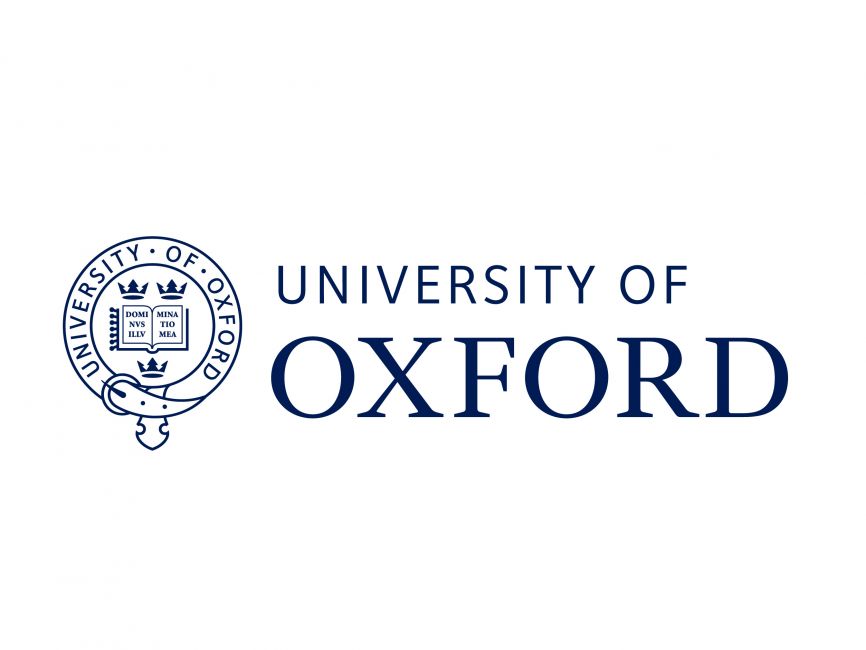
Call for papers
The molecules of private law
University of Oxford 11-12 September 2025
This symposium aims to stimulate discussion of the fundamental building blocks of private law. Examples include such concepts as obligation, duty, responsibility, thing, ownership, personality, capacity, patrimony, right, power, privilege, immunity. These and other basic constituents of legal thought continue to generate debate, controversy, and confusion in the 21st century, not only in long-established fields of law, but also when new difficulties arise, such as in relation to data, digital assets, artificial intelligence, or other technologies. The organizers now issue a call for papers on any topic related to this objective. Papers will presumptively address one ‘molecule’, but might be envisioned differently. The word limit for papers will be short (ca. 5,000 words). Papers may or may not be comparative in their perspective, and may be co-authored. We expect to select about ten papers from this call for papers to be discussed at the symposium; additional participants may be invited.
Papers will not be fully presented by the author(s); all participants will be expected to read the papers in advance. Each paper will be assigned a commentator whose comments will initiate a comparative discussion. Authors will have a brief opportunity to respond to the commentator before the period of discussion. Going forward, the organizers aim to identify topics of common interest among the scholars in attendance with the objective of generating a longer-term research agenda in relation to the molecules of private law. The symposium does not include an immediate publication project but this remains open for the future.
Proposals in response to this call for papers should include a working title and an abstract of no more than 350 words. They should be sent by email to lionel.smith@law.ox.ac.uk by 28 February 2025.
Papers will be selected on the basis of their quality and originality, their fit with other papers being presented at the symposium, and with the aim of welcoming a diversity of viewpoints. The selection will be made by a scientific committee made up of Prof. Ciara Kennefick, Faculty of Law, University of Oxford; Prof. Alexandra Popovici, Faculté de droit, Université de Sherbrooke; and Prof. Lionel Smith, Faculty of Law, University of Oxford. Scholars whose proposals are selected can expect that full texts will be due by 31 July 2025.
Some funding may be available for travel and accommodation for scholars whose proposals are selected but who would otherwise not be able to attend. Prospective participants who wish to be considered for this funding are invited to explain their needs.
Call for Abstracts
Exploring the Autonomy of Cities: Philosophical, Legal, and Policy Dimensions
June 12-13, 2025 The Workshop at the American University of Paris, Paris, France
Organized by:
Nathanaël Colin-Jaeger (The American University of Paris), Nefeli Lefkopoulou (Sciences Po Paris), Marc Goetzmann (Université de Tours).
Cities have long served as centers of economic activity, cultural innovation, and political experimentation. Yet, their role and status within larger political systems remain subject of ongoing debate. In recent years, calls for granting greater autonomy to cities have gained momentum, driven by challenges such as urbanization, climate change, and growing inequalities. However, with autonomy comes many complex questions regarding governance, justice, and equality. While the philosophical and theoretical significance of territorial autonomy has been extensively explored, the specific status of cities remained an under-appreciated topic in normative political philosophy until very recently (Weinstock, King, Schragger…). This call for abstracts invites philosophers, legal theorists, and political scientists to engage with the multifaceted issue of city autonomy.
We seek contributions that explore the conditions under which cities should be granted autonomy, the implications of autonomy for equality, and the challenges specific
to cities in navigating their relationship with regional, national, and global governance systems.
The aim is to foster a robust dialogue on whether autonomy (and in which form? which constitutional status?) is the appropriate framework for empowering cities
or if alternative approaches, such as empowerment through subsidiarity, are better suited to achieving justice and effective governance.
Themes and Topics
We encourage submissions that address the following overarching themes, or develop a comparative inquiry:
- Philosophical Foundations and Justifications
- What justifications can be offered for granting cities autonomy? Are cities entitled to self-determination in the same way as nation-states?
- Which normative ground is to be used to grant cities autonomy? Can freedom of association be a ground for autonomy, or would autonomy require more demanding conditions?
- If autonomy is too demanding, what form of empowerment should be favored, e.g., which form of subsidiarity?
- Autonomy vs. Empowerment
- Should autonomy take the form of territorial sovereignty (as in a state within a federation) or empowerment through subsidiarity? What are the comparative advantages of each ?
- How can these models balance the need for local decision-making with broader concerns for national cohesion and global challenges?
- Which option aligns better with other values one may favor (solidarity, efficiency, democratic responsiveness?).
- Balancing Autonomy and Equality
- Does autonomy risk fostering inequalities between cities and regions, or can it coexist with equitable governance?
- What mechanisms (e.g., fiscal transfers, equalization schemes) can mitigate potential disparities while preserving local decision-making capacity? How should they be justified, and what form should they take depending on the principled justification?
- How do distributive theories of justice address the tension between urban autonomy and national solidarity?
- Challenges in Implementing Urban Autonomy
- What are the practical and legal challenges of granting cities autonomy? Should their status be constitutionalized?
- How much autonomy is desirable—from cultural and policy rights to full fiscal control? What trade-offs arise at different levels of autonomy?
- How should governance frameworks address metropolitan fragmentation and overlapping jurisdictions? In particular to specific issues,
such as housing policies? - What specific issues may arise when cities are granted autonomy? How should a system with autonomous cities should, for instance, deal with immigration?
Submission Details
We invite abstracts of up to 500 words that clearly outline the research question, theoretical framework, methodology, and expected contribution to the field, with a short bibliography. Theoretical, interdisciplinary, and applied approaches will be equally considered.
Please include the following in your submission:
- Title of the abstract.
- Author(s) name(s) and affiliation(s).
- Email address(es).
- Indication of the thematic area(s) your abstract addresses (keywords).
Please note us in your submission whether or not you would have the budget to be self-funded for this workshop, or if you need additional help. Partial funding can be discussed individually on the basis of needs and availability, but it cannot be guaranteed.
Key Dates
- Abstract submission deadline : March 1, 2025.
- Notification of acceptance: March 15, 2025.
- Conference dates: June 12-13, 2025 The Workshop will take place at the American University of Paris, Paris, France.
Publication Opportunities
Selected papers may be invited for publication in an edited volume or a special issue of a journal dedicated to the themes of city autonomy and governance.
Contact Information
For questions or further information, please contact ncolinjaeger@aup.edu
"Bridging Cultures, Shaping Futures: Empowering Global Education through Collaboration"
AAB COLLEGE INTERNATIONAL STAFF WEEK IN KOSOVO
12th–16th MAY, 2025
This event brings together academic professionals and experts from various disciplines for a week of intellectual exchange, cultural immersion, and meaningful social interactions. Participants will have the opportunity to engage in a dynamic program of lectures and workshops, led by distinguished colleagues from our partner universities, covering a wide array of subjects. The International Conference with the theme: "AI in the Age of Transformation: Progress, Challenges, and Future Directions" will also be organized during the Week. These sessions are designed to promote knowledge sharing, inspire collaboration, and spark innovative ideas. Additionally, if participants wish to combine teaching and training sessions during International Week, they are welcome to do so.
Beyond the academic agenda, the International Staff Week will feature a rich array of cultural and social activities, offering participants a chance to explore the vibrant heritage of Kosovo. From cultural performances to city tours and social events, these activities will help foster international friendships and create a welcoming and inclusive atmosphere.
The registration deadline is 10 March 2025.
Registration form: (please copy the link and open it separately in case it does not open directly) https://docs.google.com/forms/d/13LG140sgVGr4gvurjekVBMNXsv_qzPVM0nOIJKyT1_M/edit
The language of the event is English.
Participation in the event is free of charge but other travel and living costs need to be covered by participants themselves. If you are eligible for Erasmus+ funding, please contact International Offices at your home institutions.
Additional Highlights:
- A separate email will be sent inviting submissions for the International Conference. The best papers will be published in our research journal THESIS, and the Book of Abstracts will be made available online for participants, partner universities, and the wider academic community.
- Participants who attend 80% of the sessions and events will receive a certificate of attendance.
- The agenda may be subject to modifications.
- Please inform us in advance about any specific requests related to activities, meetings, or dietary restrictions to accommodate your needs effectively.
Should you have any inquiries or require further information, please do not hesitate to contact : venera.llunji@universitetiaab.com
Conference
Call for Papers – Nordic Conference on Legal Method 2025
The Department of Law at Linnaeus University is delighted to host the Nordic Conference on Legal Methods between 14 May 2025 and 16 May 2025 at campus Kalmar, Sweden.
Legal methods have been discussed for a long time and are more relevant than ever. How do we deal with HRL, and with perspectives of gender and/or ethnicity? What about internal rules and contractual agreements within multinational companies? How do we address climate changes and AI, what is the rule of law and how deal with it? And globalization together with Migration, shared meetings with other legal traditions and cultures?
The aim of the Nordic Conference on Legal Method is to explore the concept of legal method, which entails the intricate process of identifying the appropriate legal principles to be applied to a given set of facts. What has traditionally been seen as a straightforward task, both history, theoretical analysis, and a discussion about values have shown that legal methods are far more complex than simply making decisions about how the law should be interpreted.
The conference commences by exploring trends in legal methodology in the Nordic countries, examining their evolution, identifying potential similarities, and subsequently exploring any differences. It also recognises the significant interplay between legal methodology and, more expansively, the interpretation of law within specific perspectives, such as place, time, space, and context.
Additionally, the conference is open to explore the concept of legal methodology across different fields of law, as well as understanding the multidisciplinary, transdisciplinary, and intradisciplinary boundary implications in other disciplines, with the intention of expanding the understanding of the implications of legal methodology.
This approach aspires to uncover shared patterns in these areas, revealing a more contemporary and forward-thinking approach to the role of law in our society, which should increasingly conform into a model of adherence to the rule of law as a universal principle, serving as the final benchmark for upholding democratic values.
We invite scholars and professionals to participate in the current and future debate inspired by, among other issues (listed alphabetically):
- Case-study.
- Comparative.
- Critical.
- Doctrinal/dogmatic.
- Empirical.
- Ethnographic.
- Experimental.
- Historical.
- In context.
- Interdisciplinary.
- Normative.
- Qualitative.
- Quantitative.
- Socio-legal.
- Transdisciplinary
Other methods to be analysed that are not listed above are, of course, very welcome. Note too that submissions are welcome that engage in a wholistic view of just one single method, or one-or-more methods.
Submissions from persons of all academic positions are welcome. Those that are at an earlier stage of their research endeavours, such as those at Ph.D./doctoral level, are particularly welcome.’
Keynote speakers
- Åsa Gunnarsson (Umeå University)
- Johanna Niemi (University of Helsinki)
- Eva-Maria Svensson (University of Gothenburg)
- Mauro Zamboni (Stockholm University)
- Hanne Petersen (University of Copenhagen)
Submit your abstract
The Organising Committee welcomes submissions for presentation at the Nordic Conference on Legal Method. All are welcome and encouraged to submit abstracts and/or suggestion panels of panels that align with the overall theme of legal methods.
We kindly ask you to write an abstract 300 – 500 words before January 31st 2025. https://axacoair.se/go?j28PPUoq
Potential participants will be advised if their abstract has been selected by the Organising Committee before the end of February 2025.
Important dates
- Deadline for submission – Friday 31 January 2025.
- Announcement of acceptances – Friday 28 February 2025.
- Conference registration open – Monday 3 March 2025.
- Conference registration closes – Monday 9 May 2025.
- Conference – Wednesday 14 May 2025-Friday 16 May 2025.Contact information
-
If you have any questions about the conference, please
email: legalmethods2025@lnu.se and you will be contacted by one of the organizing committee.Organising committee:
Graham Butler, Visiting Professor of Law at Linnaeus University
Marie Karlsson Tuula, Visiting Professor in Civil law at Linnaeus University
Lotti Ryberg Welander, Senior lecturer and Ph.D. in Sociology of Law at Linnaeus University

Call for Papers: 2025 Law and Development Conference
“Law and Economic Development”
Honolulu, Hawai‘i, December 5-6, 2025
The Law and Development Institute (www.lawanddevelopment.net) and the University of Hawai‘i at Mānoa, William S. Richardson School of Law will co-host the 2025 Law and Development Conference.
Law has a significant impact on economic development, which in turn enhances growth, industrial competitiveness, and sustainability. But there is no consensus on the optimal set of laws and legal institutions to promote economic development and channel it toward positive impacts. In particular, there is a range of views on whether government regulations hinder or facilitate development, and what types of interventions are likely to be effective. The conference will explore how both international and domestic legal frameworks contribute to development, with a particular emphasis on sustainability concerns. The following sub-topics will be examined:
-
- Sustainable Development, Law, and Environmental Protection
- Law and Industrial Diversification
- Trade Law and Development
- International Investment Law and Development
- Property Law and Sustainability
- Rising Issues in Law and Development
We ask all interested speakers to submit one-page paper abstracts by May 1, 2025. (Please indicate the relevant sub-topic in your submission.) We expect abstracts, papers, and presentations in the English language.
Important Deadlines
-
- Abstract Submission: May 1, 2025
- Notification of Acceptance: June 1, 2025
- Final Selection of Speakers: June 15, 2025
- Full Papers Due: November 1, 2025
Please note that all conference papers will be uploaded on the conference website and will be accessible by the general public (with the attachment of appropriate copyright notice).
Selected papers will be published in a Law and Development Review Special Issue in 2026.
We expect all authors to publish their conference papers, if selected, in the 2026 LDR Special Issue.
All speakers and participants are expected to make their own travel arrangements during the conference. No financial support is available.
Please submit your abstract and conference inquiries to the Law and Development Institute (Professor Y.S. Lee) by email at info@lawanddevelopment.net

|

|
We are pleased to announce a call for papers for Legal Personhood in Private Law,
edited by Christopher Essert (Toronto), Eva Micheler (LSE), and Paul Miller (Notre Dame). Legal Personhood in Private Law aims to examine questions concerning the nature of legal personhood in private law.
Questions to be addressed include: the concept of legal personhood as such; the relationship between private and public law in attributions of personhood and/or delineation of legal concept(s) of personhood; the kind(s) and salient characteristics of individuals and groups treated as legal persons in private law; hard cases in the attribution of legal personhood (e.g., liminal personhood); the doctrinal implications of, and wider functional significance held by, legal personhood in systems of private law; differences between civil and common law renderings of legal personhood; and the relationship between legal concept(s) of personhood and moral, theological, and/or cultural concepts of personhood.
The volume will be composed primarily of solicited contributions, but we seek to include an additional two contributions through this call for papers. Submissions should be a maximum of 12,000 words, inclusive of all text and footnotes. The submission should be accompanied by an abstract indicating how the paper fits into the themes identified above.
The deadline for submission is January 31, 2025.
Scholars at any stage, including graduate students, and those working in disciplines beyond private law theory, are encouraged to submit.
Authors whose papers are selected will be invited to present their papers at a conference to be held at Notre Dame's Global Gateway Campus in Rome, Italy on November 6, 7, and 8, 2025. The Notre Dame Program on Private Law will arrange and pay for reasonable travel expenses, including 4 nights of hotel accommodations in Rome.
To submit a paper for consideration, please email it to Christopher Essert (chris.essert@utoronto.ca), Eva Micheler (e.micheler@lse.ac.uk), and Paul Miller (paul.miller@nd.edu).
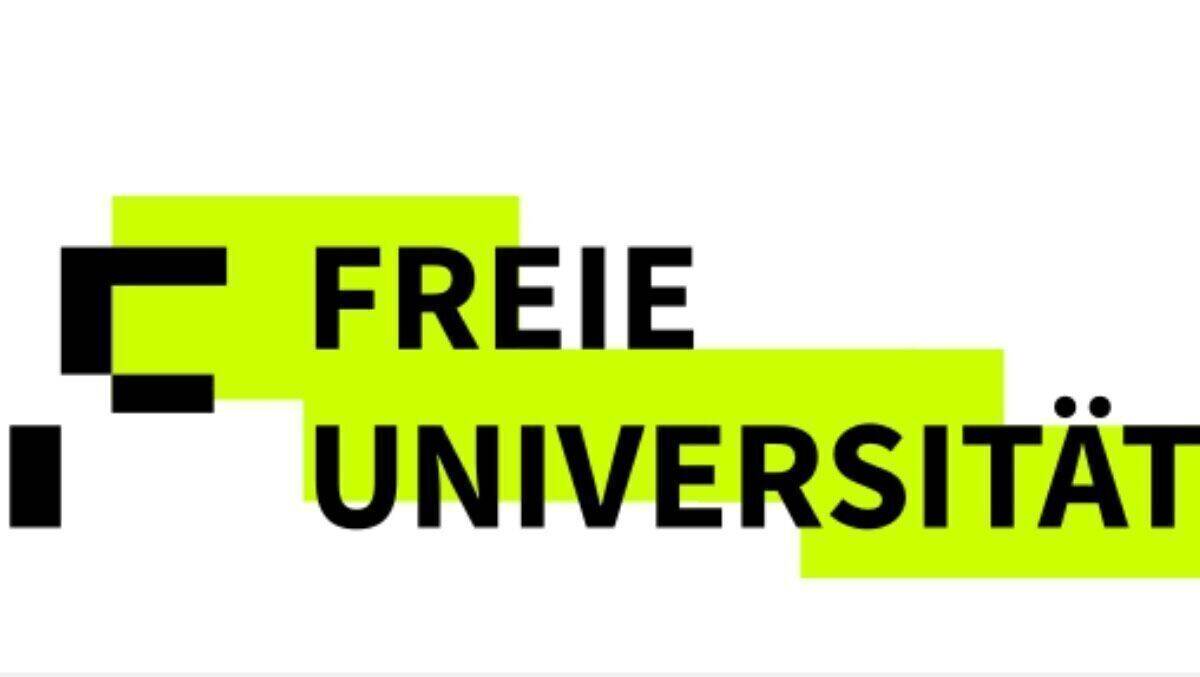
|
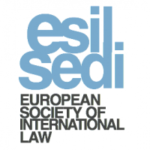
|
RECONSTRUCTING INTERNATIONAL LAW
20th Annual Conference of the European Society of International Law Freie Universität Berlin,
11-13 September 2025
Call for Papers
The European Society of International Law invites abstracts for papers and proposals for panels curated by Interest Groups for its upcoming 20th Annual Conference. I. THE GENERAL THEME For the last decade, international law has gone through a period of turbulence. In response, it is time to move beyond crisis narratives and adopt a forward-looking approach. For such an undertaking, the year 2025 offers an appropriate context. It will mark the 80th birthday of the United Nations, the institutional centre of the international legal order. At the same time, 2025 is just five years away from 2030 when the future direction of the current blueprint for global social order, the Sustainable Development Goals (SDGs), will need to be decided. The theme of “reconstructing international law” will be brought to life on various levels:
• Institutional: Reconstruction will be a pressing issue on a practical level. The collective security system of the United Nations has had limited success in realizing its purpose in the war of aggression against Ukraine, the ongoing war in Gaza as well as in many other contexts. Reconstructing the authority of the UN’s institutional structure will require creative thinking on the interplay of UN organs and the role of international law. Challenges of institutional reconstruction are not confined to the UN but also invite us to rethink institutional arrangements of other international organisations, including the WTO, the WHO, and the EU as well as their relationship with more informal governance arrangements.
• Normative: The SDGs have contributed to changing the understanding of what development requires, but their true potential of transforming our world in the Global South and beyond remains unrealized. Reconstructing the promise of international development without replicating earlier mistakes and without giving in to powerful new actors with wide-ranging conceptions for global development will require thinking about the role of international law in realizing a just future for the world’s population.
The conference will offer a venue to critically accompany as well as support other political processes leading to a new blueprint for development in 2030. • Historical: How has international law fared after past major systemic crises? At various moments in the history of international law, it was necessary to embrace a new form of 2 international law. What can we learn from institutional and normative projects of (re-) constructing “new” international law in the past?
• Theoretical: Reconstructing international law cannot mean a return to outdated progress narratives. The insights from Critical Legal Studies and Third World Approaches cannot and should not be unlearnt. This implies that the authority and legitimacy of international law need to be reconstructed in a manner as inclusive as possible and with input from a wide variety of theoretical approaches. The theme of “Reconstructing International Law” offers a framework for creatively thinking ahead in institutional, normative, historical, and theoretical terms but also across the various legal regimes in international law. It also requires a dialogue with academics from other disciplines such as political science, history, and sociology.
The conference is organized by Freie Universität Berlin (Prof. Dr. Helmut Aust and Prof. Dr. Heike Krieger) on behalf of the European Society of International Law.
• The deadline for submission of abstracts is 31 January 2025.
• Successful applicants will be informed no later than 31 March 2025.
• Deadline for joining ESIL (applicable for non-members) is 30 April 2025.
• The deadline for submission of full papers is 1 July 2025.
• The conference runs from 11-13 September 2025.
• The deadline for (optional) submission of final papers (to be included in the ESIL Paper Series and/ or a future conference publication) is 1 November 2025.
After the conference, ESIL provides the opportunity to publish papers in the ESIL Proceedings (ESIL Paper Series) and also plans to publish selected outstanding papers in a volume of the ESIL Book Series (published by OUP). Further details about how to submit papers for publication will be provided to all speakers immediately after the conference.
All selected speakers must register for the conference and will be eligible for a reduced conference registration fee. In addition to the reduced fee, early registration after acceptance of the paper will also result in a lower early bird fee. A limited number of travel grants and carers’ grants are available to ESIL members to encourage and facilitate attendance at ESIL events. Application details for these grants can be found on the ESIL website. In order to be eligible for a grant, me
For further information, please write to esil2025@rewiss.fu-berlin.de.
 |
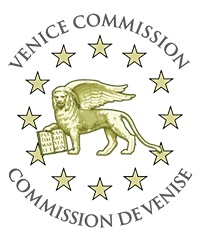 |
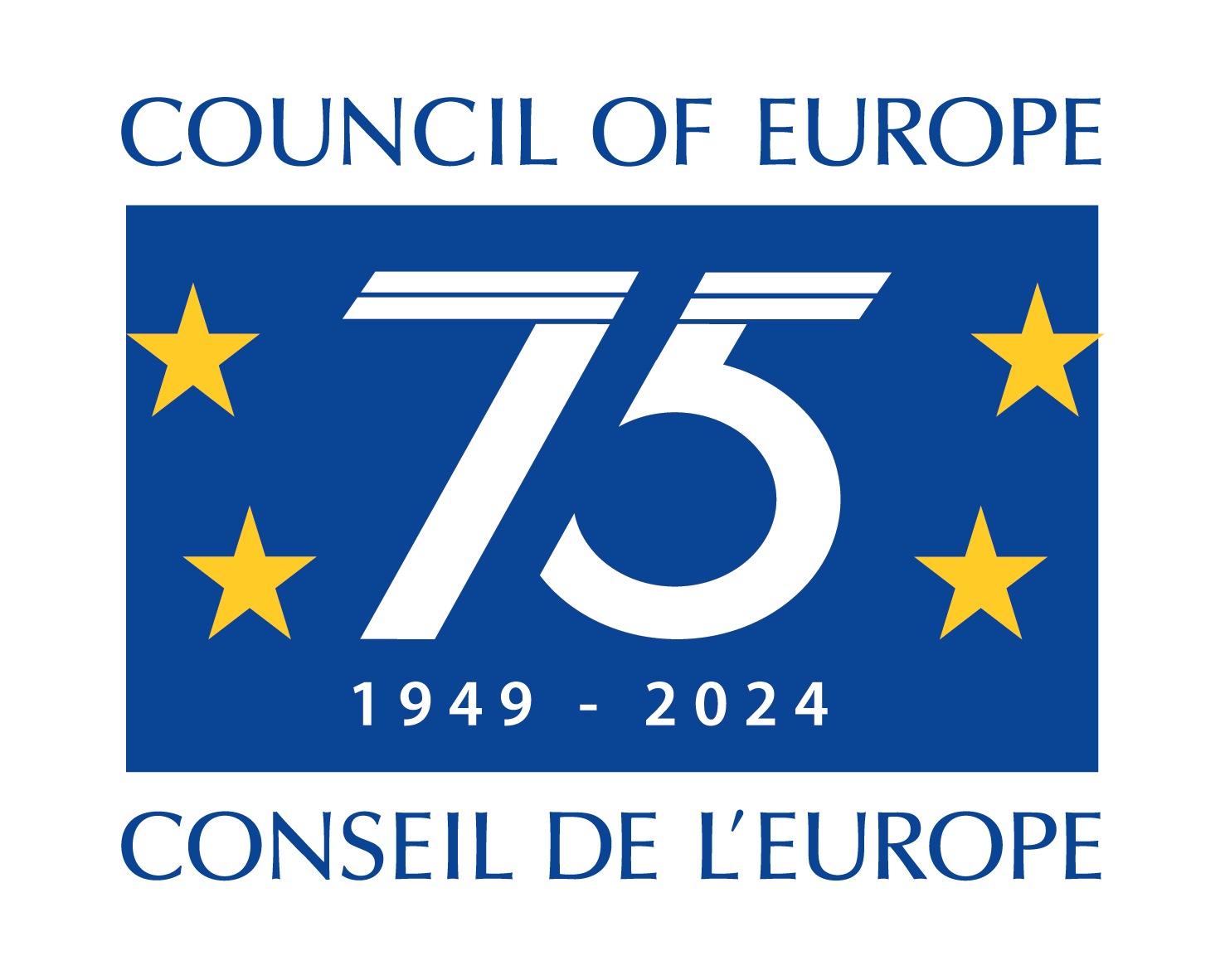 |
The Venice Commission 1990-2025
Taking stock of 35 years for democracy through law
Milan, Bocconi University, 15-16 May 2025
Established through Resolution (90)6 of the Committee of Ministers of the Council of Europe “on a Partial Agreement Establishing the European Commission for Democracy through Law” on 10 May 1990, the Commission for Democracy through Law (‘Venice Commission’) has constantly grown in importance and influence in the course of its 35 years of activity. While in the Nineties its main task was to support the constitution building processes during the democratic transition in Central and Eastern European countries, in recent years the Venice Commission has been confronted with a wide variety of constitutional issues from all over Europe. Furthermore, its impact has significantly expanded beyond Europe, with 15 non-Council of Europe States among its members and cooperation programs in Asia, Africa and Latin America. Having delivered an impressive amount of opinions and studies covering all areas of comparative constitutional law, the Venice Commission is nowadays a leading and influential voice in Europe on all matters pertaining to democracy, human rights and the rule of law.
On the occasion of the 35 th anniversary of its establishment, the Department of Legal Studies of Bocconi University in Milan and the Venice Commission convene a 2-days international conference – “The Venice Commission 1990-2025. Taking stock of 35 years for democracy through law” – to encourage the scientific debate on the contribution of the Venice Commission to the development of common constitutional standards. The conference aims at being an occasion of dialogue and exchange between legal scholarship and the Venice Commission and its Secretariat on current and future challenges for the Commission. Legal scholars at all stages of their professional career and from all jurisdictions are invited to submit a proposal focusing on the following topics (non-exhaustive list):
- The history of the Venice Commission, its authority-building process, its current challenges;
- The Commission’s institutional setting (composition, selection of members, legal basis, types of documents adopted, etc.);
- The Commission’s ways of working (dialogue with the domestic stakeholders, stewardship, cooperative approach, etc.);
- Effects and impact of its opinions and studies (quotations by domestic and international courts, impact on domestic legislative processes, influence on international standard setting, etc.);
- Examination of specific opinions and reports, either on a particular topic (e.g. constitutional adjudication, election laws, amnesty laws, etc.) or on a particular State, including their impact on the ground;
- The Commission’s interaction with national or international authorities (national Parliaments, Governments and Courts, Ombudsman institutions, international organizations, the ECtHR, etc.);
- The cooperation with the European Union and the increasing role of the Venice Commission in the assessment of the conditionality requirements for candidate countries to the EU as well as Member States.
Participants are requested to send an abstract of no more than 4.000 characters (including spaces), by 31 January 2025, via email to: conference2025.venicecommission@unibocconi.it using as email subject “The Venice Commission 1990-2025”.
The organizing committee will select the papers and notify the participants by 15 February 2025. Successful applicants will be invited to present their papers at the conference and debate with one or two discussants, including former and current members of the Venice Commission.
The conference proceedings will be published, subject to peer review, either in a special issue of an international law journal, or in an edited book.
The organizing Committee: Marta Cartabia (Bocconi University and Venice Commission), Simona Granata-Menghini (Venice Commission), Davide Paris (Bocconi University).
Deadlines’ overview:
Submission of abstracts: 31 January 2025
Notification of successful applicants: 15 February 2025
Conference: 15-16 May 2025
For further information: conference2025.venicecommission@unibocconi.it
Details
Organisation: Department of Legal Studies, Bocconi University in Milan and the Venice Commission
conference2025.venicecommission@unibocconi.it
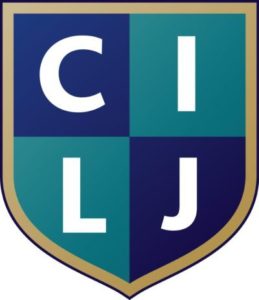
Cambridge International Law Journal – 14th Annual Conference
Call for Abstracts
The CILJ publishes two issues per year in June and December. The first issue is based on an open call for papers, while the second issue is composed of both an open call as well as selected papers from the Journal’s annual conference.
The CILJ publishes two issues per year in June and December. The first issue is based on an open call for papers, while the second issue is composed of both an open call as well as selected papers from the Journal’s annual conference.The Cambridge International Law Journal (CILJ) is pleased to invite the submission of abstracts to be considered for presentation at the 14th Annual Conference of the CILJ. The Conference will take place at the Faculty of Law, University of Cambridge on 28 and 29 April 2025. The theme of the 2025 Conference is ‘Navigating a Multipolar World: Challenges to the Post-WWII Status Quo of International Law’. We invite all interested scholars to submit an abstract between 250 and 300 words via the link below by 23:59 GMT on 9 January 2025. We welcome submissions from PhD students, early career researchers, and established academics, and practitioners. Selected papers will be presented at the Conference, and all conference presenters will have the opportunity to submit their papers for consideration for publication in Volume 14(2) of the CILJ.
Further details can be found here or by contacting conference@cilj.co.uk.
Details
Organisation: Cambridge International Law Journal
Website: https://cilj.co.uk/
Deadline: 09/01/2025

JLMI - Call for papers - Issue no. 2/2025
This Call for Papers of the Journal of Law, Market & Innovation (JLMI) concerns the second issue to be published at the end of July 2025 and is devoted to Compliance & Enforcement Technologies. This issue will be edited by the Editors-in-Chief of the JLMI (Riccardo de Caria and Cristina Poncibò), along with Antonio Davola (University of Bari Aldo Moro and JLMI Editorial Board member) as guest co-editor. You can find the call with all the details at the following link:
Compliance & Enforcement Technologies
The Call invites contributions on the subject of “Compliance & Enforcement Technologies”, exploring the cutting-edge digital tools and systems designed at ensuring compliance and tackling persistent enforcement challenges in the EU’s regulatory framework. This special issue invites scholarly contributions examining the role of emerging technologies in bridging the compliance and enforcement gaps, particularly within the EU Digital Acquis.
The concept of compliance & enforcement technologies covers a wide range of digital tools that help at promoting ex-ante compliance with legal frameworks and regulations and advancing ex-post enforcement. These technologies often utilize automation, AI, and data analytics to bridge enforcement gaps across different jurisdictions, particularly in complex regulatory frameworks like the EU Digital Acquis.
Key regulations such as the Digital Services Act (DSA), the Data Act, the General Data Protection Regulation (GDPR), the AI Act, and EU consumer law have been expanding Eu’s digital governance landscape, whose consistent and effective compliance across Member States and enforcement thus becomes a more and more pressing issue.
One prominent example is Claudette, an AI-based tool developed at the European University Institute (EUI). Claudette is designed to automatically analyse and assess the compliance of online terms and conditions with EU consumer law, particularly identifying unfair clauses or practices, or the compliance with the GDPR. By scanning websites and flagging potential violations, Claudette supports professionals and platforms to comply and regulators and consumer protection agencies to enforce the EU Digital Acquis by streamlining the monitoring of widespread digital compliance challenges.
Other examples of these technologies include automated compliance monitoring systems that utilise AI to identify non-compliance in real time. These systems scan online content and transactions, detecting potential breaches of the Digital Services Act (DSA) or GDPR, particularly regarding illegal content, privacy violations, or misleading advertising.
Topics of interest also include the integration of DLTs and blockchain technology to enhance transparency and traceability in areas such as data governance and content moderation, and the use of smart contracts to automate compliance and enforcement of digital agreements and regulatory penalties.
We welcome theoretical, empirical, critical and case study-based approaches that provide a deeper understanding of the said technologies, their practical applications, and the challenges surrounding their adoption. Contributions from a variety of disciplines, including law, computer science, economics, and public policy, are encouraged to foster a rich, interdisciplinary dialogue on the future of EU law enforcement. The Editorial Board will select articles based on the quality of research and writing, diversity, and relevance of topic. The novelty of the academic contribution is also an essential requirement.
Prospective articles should be submitted in the form of abstracts (around 800 words) or draft articles (see below) to submissions.jlmi@iuse.it by 30 November 2024. Perspective authors will be notified by 10 December 2024. Final articles shall be delivered by 10 March 2025 and should conform to the journal style guide that is based on OSCOLA.
Typically, the JLMI accepts contributions within the range of 10.000 to 15.000 words, including footnotes, but both shorter and longer articles will be considered. Submitted articles will undergo a rigorous double-blind peer-review process. Prior to submission, perspective authors are invited to check the Authors’ guidelines (also with regard to simultaneous submission to other journals) and the JLMI Code of Ethics. For further information, or for consultation on a potential submission, you can contact us by email at editors.jlmi@iuse.it.
JLMI is featured in the Database of Open Access Journals (DOAJ) and will soon be indexed
in Scopus and Heinonline.

We would like to inform about ongoing calls for proposals
under programmes offered by NAWA

The aim of the Polish Returns NAWA Programme is to allow the outstanding Polish scientists to return to their homeland and take up employment in Polish universities and research institutes. The Programme will create optimal conditions for returning scientists to build their own project groups in Poland and conduct research in optimal conditions. Polish higher education institutions and research institutes will acquire specialists with international experience and knowledge in the field of the newest research trends in their scientific discipline.
The Programme includes 2 tracks, depending on the stage of the returning scientist’s academic career:
- Junior scientist
- Experienced scientist.
The returning scientist may be a person who:
- is a Polish citizen
- holds a doctoral degree (for Junior scientist – obtained not earlier than 7 years before submitting the application)
- has worked abroad as a scientist for the required period specified in the call text, and at that time has not lived nor worked in Poland
- can demonstrate scientific achievements that are internationally recognized, and stand out in the context of a given discipline and career stage
- gained experience in managing a research team or a research project as part of the research work abroad (for the Experienced scientist track).
The Programme funds
- remuneration for the returning scientist
- remuneration for the inviting person
- remuneration for the project group
- relocation of the returning scientist
- research component financed by the National Science Centre (NCN) or application component financed by the National Centre for Research and Development (NCBR).
Under the Junior scientist track the projects may last from 24 to 36 months, with NAWA financing up to PLN 1 143 200. In the Experienced scientist track, projects from 36 to 48 months are possible with NAWA financing up to PLN 2 397 600. Additionally, in the case of basic research, one may apply for the NCN research component - a starting grant of up to PLN 200 000, and in the case of application research and development work - for the NCBR application component up to PLN 400 000. The allocation for the call is PLN 18 000 000.
For more information about the Polish Returns Programme please contact:
Katarzyna Pietruszyńska, Department of Programmes for Scientists
katarzyna.pietruszynska@nawa.gov.pl
+ 48 22 390-35-56
Event Date 17.09.2024
Event End Date 18.12.2024 15:00

NAWA Preludium Bis 4
The objective of the programme is to support international mobility of doctoral students by enabling them to complete fellowships related to participation in research projects under the National Science Centre in Poland PRELUDIUM BIS 1 call for proposals.
Foreign fellowships enable doctoral students to gain scientific experience in European and non-European academic or research centres as well as to establish international scientific cooperation. They will constitute synergic activities with the PRELUDIUM BIS 4 projects of the National Science Centre in Poland.
Visits under the programme may last from 3 to 6 months. Funding under the programme shall cover the costs of the scholarship holder’s subsistence related to his/her stay in a foreign host centre and a mobility allowance. In the case of a scholarship holder with a severe or moderate disability level, the amount of the scholarship may be increased if the scholarship holder’s guardian participates in the stay.
Applications under the programme may be submitted exclusively by the scholarship holders of the PRELUDIUM BIS 1 programme conducted by the National Science Centre in Poland. The call for proposals is conducted on a continuous basis until 10 December 2027 or until the budget of the programme is exhausted. If necessary, the deadline for closing the call for proposals may be extended.
Detailed information for applicants:
https://nawa.gov.pl/naukowcy/nawa-preludium-bis/nawa-preludium-bis-4
Event End Date 10.12.2027
Young Property Lawyers’ Forum Annual Conference, 5-6 June 2025
YPLF is a network for early-career property law scholars, offering a platform to discuss innovative ideas in an informal setting. This year’s annual conference theme, The Dimensions
of Property, explores property law from doctrinal, theoretical, and empirical angles, with a focus on property’s spatial, temporal, and international dimensions.
We invite junior researchers (PhD students and those within 5 years of having obtained their doctorate) to submit abstracts of presentations to be given at the conference.
Abstracts should be sent via email by 15 January 2025.
For more information, please visit the website.
Call for Papers – International Conference
The Legal Distinction between Persons and Things: Changing Perspectives
7-8 July 2025, University of Antwerp (Belgium)
Submission guidelines
Researchers in all stages of their careers are invited to submit abstracts of around 500 words by 15 December 2024 to pr2@uantwerpen.be. It is also possible
to submit 3 abstracts in the form of a panel with a common theme. If you do want to submit a panel, please clearly note that the submission is part of a panel presentation, and add a short (100 words) description of the panel.
Registration fee
The registration fee for the 2-day Conference is €180 per person, with a discounted fee of €120 for (PhD) students. This fee includes the full 2-day programme including coffee, tea, lunch and a reception. On Monday 7 July, there is an optional Conference Dinner in the City Hall. Those interested in joining the Dinner can buy a ticket during registration.
Important dates
- Abstract submission deadline: 15 December 2024.
- Conference dates: 7-8 July 2025.
More information:
• The Conference language is English.
• Presentations in the parallel sessions will last 20 minutes with 10 minutes discussion.
• A selection of papers will be eligible for publication in an pr2@uantwerpen.be.edited volume. More information will follow at a later stage.
Contact Information
For further inquiries, please contact Dr. Eva Bernet Kempers at or visit our Conference Website at eva.bernetkempers@uantwerpen.be.

International Doctoral and Postdoctoral
Conference in the Law and Law Related Fields – SPLITLAW 2025
Faculty of Law, University of Split (Croatia)
The Faculty of Law, University of Split has the honour to announce the Call for Abstracts for the 2nd “International Doctoral
and Postdoctoral Conference in the Law and Law Related Fields – SPLITLAW 2025“, which will be held from 14 to 15 May 2024 as a hybrid event: on-site (in-person) participation (Faculty of Law, University of Split, Domovinskog rata 8, 21 000 Split, Croatia); and online participation (via MS Teams).
The official language of the conference is English.
Invitation letter for more information:
https://doctorat.ase.ro/wp-content/uploads/Anunturi/2024/Invitation%20Letter%20SPLITLAW%202025.pdf
The Application form should be completed via the following link: https://forms.office.com/e/PFge2v8mJZ
Important dates:
7 January 2025 - Deadline for completing the application form and submitting the abstract
14 January 2025 - Notification of acceptance of the abstract
21 January 2025 Deadline for registering to participate in the conference on-site/online
28 January 2025 - Deadline for paying the conference fee
4 March 2025 Deadline for submitting the full paper
14-15 May 2025 Conference dates
For any questions or further information about the conference, you can send an e-mail to: splitlaw@pravst.hr
Invitation for Papers
Public Administration and Society
Volume XXV, No. 2 / 2024
Public Administration and Society is a scientific double reviewed journal published by the Faculty of Public Administration at the Pavol Jozef Šafárik University in Košice. The journal features original scientific research, discussions, and reviews focusing on the theory and practice of public administration.
The journal's mission is to publish significant results of scientific research in areas such as public policy, public administration, social sciences, public law, economics, and public administration management.
Key Information:
ISSN: 2453-9236 (online)
Indexed in: ERIH PLUS
Access: Open access via ZENODO
Language: English
Frequency: twice a year
Fee: Free
Contact: fvs-vss@upjs.sk
Current Volume: https://www.upjs.sk/fakulta-verejnej-spravy/en/vsas/vsas-aktualne-cislo/
Visit us at: https://www.upjs.sk/fakulta-verejnej-spravy/en/vsas/
LJUBLJANA SANCTIONS CONFERENCE
Call for papers 25 – 26 September 2025 Faculty of Law, University of Ljubljana, Slovenia
We would like to draw your attention to the Ljubljana Sanction Conference, which will be held on 25-26 September 2025 at the Faculty of Law, University of Ljubljana.
The conference is organized by Maruša T. Veber (University of Ljubljana), Marko Svicevic (Palacky University Olomouc), Peter Van Elsuwege and Celia Challet (Multidisciplinary International Network on Sanctions, Ghent University).
The event aims to encourage interdisciplinary discussions on sanctions by bringing together practitioners, scholars, and experts
to explore various aspects of sanctions in international and European law, politics, and economics. The organisers invite abstracts covering a wide range of topics, including the evolution of international sanctions practices, theoretical and practical perspectives
on sanctions, challenges in national sanction implementations (such as listing and de-listing procedures, compliance, evasion,
and violations), sanctions and human rights, legal issues surrounding the confiscation of state and private property, extraterritorial effects of sanctions, sanctions within the context of international organisations, sanctions as geo-political and geo-economic tools, links between sanctions and investment law, sanctions and humanitarian action, critical views on sanctioning policies and double standards, and TWAIL perspectives on sanctions.
The organizers welcome abstracts from the following topics:
• The development of international sanctions practice;
• The practice of abstention to sanction and the possible double standards;
• The notion of sanctions – theoretical and practical perspectives;
• Challenges in national implementation of sanctions (including listing and de-listing procedures, compliance, sanctions evasion and procedures concerning sanctions violations);
• Sanctions and human rights in the case law of the Court of Justice of the European Union;
• Legal issues concerning the confiscation of state-owned property;
• Extraterritorial effects of sanctions;
• Confiscation of private property and human rights;
• Sanctions of and in the context of international organizations;
• Sanctions as geo-economical and geo-political tools;
• Intersections between sanctions and investment law;
• Sanctions and humanitarian action;
• Effectiveness of sanctions;
• Critical approaches to and double standards in sanctioning policies;
• TWAIL approaches to sanctions;
• The world-making dimensions of sanctions;
• The type of world order promoted by the practice of sanctions.
Paper and panel proposal up to 500 words must be submitted by 31 December 2024.
The call for papers and submission portal are available at: https://sanctions.upol.cz/.

We are excited to announce the Winter Study Tour 2025 at AU, focused on sustainability across three key disciplines: Business, Engineering, and Architecture. Join us for an immersive journey into the future of sustainability, where innovation meets responsibility at Ajman University.
To apply, please click here to access the application form.
Please find attached our flyer to share with your members and students. You will also find below the tour's details.
What to expect:
- Learn from subject experts (academic, governmental, and private institutions).
- Know more about the history and culture of the UAE.
- Immerse in the world of sustainability through enlightening industry tours.
- Engage in hands-on sustainability-centered activities.
- Deepen your knowledge of the UAE's crucial ecosystems.
- Gain essential knowledge of best sustainable practices.
- Hear from well-known Architectural Consultants and Urban Developers.
- Gain hands-on experience with Artificial Intelligence and gadgets.
- Witness the best industrial practices, innovation, and business processes in operation.
- Gain knowledge about eco-friendly and sustainability initiatives in the UAE.
- Visit Burj Khalifa, the world’s tallest building; shop at the world's largest mall; go dune bashing, and much more.
Program Fee: Regular fee: USD 870/participant
Early Bird Discount: USD 770 (Register before 5 November)
Group Discount: USD 740 (10 or more)
Registration Deadline: December 5, 2024
Program fee includes:
• 6N Accommodation (on a sharing basis), with daily breakfast included.
• Airport Pick-up and Drop-off (only on the first & last days).
• Welcome Dinner with VIPs.
• Access to all technical sessions and industrial visits.
• Access to on-campus facilities (Gym, Pool, Library, Sports Arena, etc.).
• Daily local transportation.
• Daily Breakfast, Coffee Breaks, and Snacks.
• Entry tickets to all planned leisure activities.
• City Tours (Abu Dhabi, Ajman, Dubai, Sharjah and more).
For inquiries, please don't hesitate to contact us at international@ajman.ac.ae
[Offer sent by dr hab. Edvardas Juchnevicius, prof. UG ]
CALL FOR PAPERS:
Volume IV, Issue IV *SUBMISSIONS OPEN*
Subject Area: Law and Related Disciplines
Perks: Certificate of Excellence, Free DOI, Internship Opportunities, Chance to be Student Editor, Indexed at Manupatra, HeinOnline, Google Scholar & ROAD, Timely processing of Manuscript (1-5 working days)
How to Submit? Click on the submit manuscript button or click here.
The Indian Journal of Integrated Research in Law (ISSN: 2583-0538) is inviting original and unpublished manuscripts from all academicians, authors, legal professionals & law students across the globe for its Volume IV Issue IV.
The Indian Journal of Integrated Research in Law, ISSN: 2583-0538, is an online bi-monthly journal that promotes research in the field of law as an integrated subject. A multidisciplinary approach is a key method to combine knowledge from different platforms and achieve a goal with the knowledge of other disciplines. Thus, the journal aims to bolster research in law while giving due regard to the interplay of law with other disciplines of study.
IJIRL strives to provide a platform where everyone related to the field of law can contribute their research work on any topic related to law or allied subjects and further our goal of creating a quality driven platform open to students and professionals alike which can be utilised to foster the growth of law as a discipline in the contemporary era while instilling a sense of curiosity for legal research.
PERKS OF GETTING PUBLISHED AT IJIRL:
- FREE DOI (DIGITAL OBJECT IDENTIFICATION): A DOI is a string of numbers, letters and symbols used to permanently identify an article or document and link to it on the web. A DOI will help a reader easily locate a document from the citation.
- CERTIFICATE OF EXCELLENCE: The top authors in each issue are given a Certificate of Excellence for their publication with other prizes.
- INDEXED: The journal is indexed in reputable databases like Manupatra, HeinOnline, Google Scholar & ROAD which makes the articles available to a wider community, thus, making the research available to all.
- TIMELY PROCESSING OF MANUSCRIPT: The whole review process takes up to 72 hours. The final publication is done within 1-5 working days of the payment of the processing fee.
- INTERNSHIP OPPORTUNITIES: The top authors in each issue will be provided with internship opportunity to work as Student Editors.
The authors can submit their manuscripts through the form provided here: https://forms.gle/jDjLdanCTXL65YWB8
TYPES OF SUBMISSIONS ACCEPTED
IJIRL accepts submissions of manuscripts in the following categories:
- Long Articles (3500-8000 words, Excluding footnotes)
- Essays/Short Articles (1200-3500 words, Excluding footnotes)
- Case Notes and Legislative Comments (1200-3500 words)
Note: The journal may be flexible on the word limit depending on the quality of the article.
GUIDELINES FOR SUBMISSION
The guidelines for publication must be strictly followed. The guidelines for publication to IJIRL Journal can be accessed here.
PROCESSING CHARGES (TO BE PAID AFTER ACCEPTANCE)
Single Authored: INR 700/-
Co-Authored: INR 900/-
Foreign Authors: $ 25/- (Outside India)
Note: There is no separate Charge for Co-Authorship till a maximum of 3 Authors.
CONTACT INFORMATION
All correspondence and queries related to the submission may be addressed to info.ijirl@gmail.com
 |
Sustainability is (Still) Possible!
Governing Market Actors for a Safe and Just Space
The Steering Committee for the SMART Network is seeking papers for its symposium in Turin on 18 and 19 September 2025. The symposium aims to revitalise the SMART Network by reestablishing connections between existing members and welcoming new friends and colleagues interested in sustainability-focused research.
Call for papers deadline: 1 April 2025
The EU-funded project SMART (Sustainable Market Actors for Responsible Trade, 2016-2020) sought to identify the factors that would facilitate the contribution of businesses and other market actors to sustainability. Drawing on SMART’s framework, this call understands sustainability as securing social foundations for humanity everywhere, now and in the future, while mitigating pressures on planetary boundaries. In short, it is about ensuring a safe and just space for humans and other living creatures. Despite business-as-usual driving humanity toward an unsustainable future, we, the Steering Committee of the SMART Network continue to believe in SMART’s mission statement that sustainability is possible.
At its conclusion in February 2020, the SMART project publishedreform proposals which covered three main strands: Bussiness,Finance and Products. These proposals encompassed trade and investment law, business law, company law and accounting law, financial market law and banking, public procurement, and circular economy law. In the intervening years, these proposals have informed legal reforms and provided a foundation for a new range of research projects and publications. It is now time to take stock, look back at the work, reform proposals and legacy of the SMART project and look forward to what needs to be done and how it can be achieved.
A wide variety of areas can be covered, including the following:
- Governance of business, including global value chains, for sustainability
- Sustainable finance and banking
- Corporate sustainability due diligence
- The evolution of accounting and sustainability reporting
- Circular economy and product regulation
- Public procurement for sustainability
- International trade and investment
- Litigation for sustainability
Abstracts of 500 words should be submitted via this online form before 1 April 2025. Responses will be provided by 30 April. While the symposium will run in a hybrid format, preference will be given to papers for in-person delivery.
In advance of the symposium, selected participants will be asked to develop their abstract into a blog for possible publication in Blogging for Sustainability. All accepted participants will be required to submit short draft papers for circulation to other participants no later than 1 September 2025. We also aim to publish, subject to agreement with editors and peer review, a set of final papers in a special issue of a leading international journal. Hence, we request that abstracts contain original work, not published elsewhere.
The symposium will be followed by a SMART Network meeting to discuss how the network should move forward, potential research collaborations, and future publication plans for the final papers.
The organisers are unable to offer funds for travel or accommodation. However, no registration fee is required and the University of Turin will kindly provide food and refreshments.
We look forward to reading your abstracts and meeting you at the 2025 SMART Network symposium.
The SMART Network Steering Committee:
Prof. Beate Sjåfjell (University of Oslo)
Prof. Roberto Caranta (University of Turin)
Prof. Blanaid Clarke (Trinity College Dublin)
Dr. Shouvik Guha (West Bengal National University of Juridical Sciences)
Dr. Aude-Solveig Epstein (Paris Nanterre University/NYU Abu Dhabi)
Dr. John Quinn (Dublin City University)
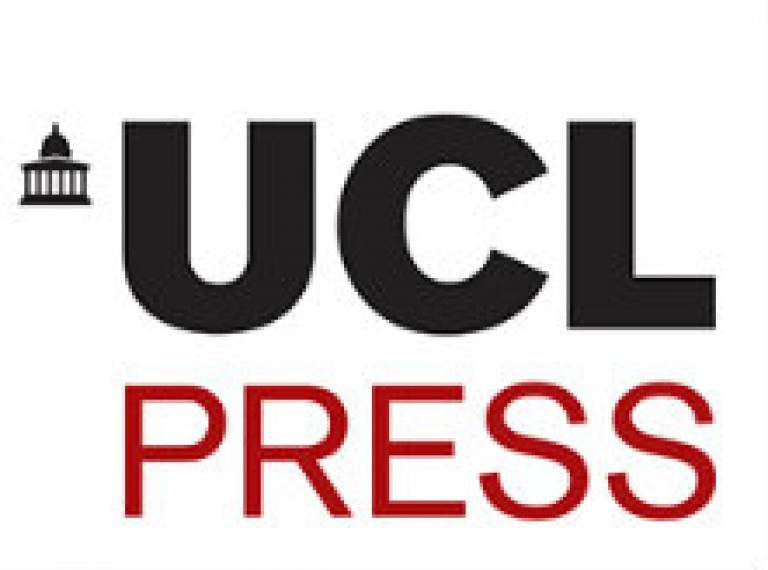
The editors of Europe and the World: A law review are delighted to announce that their journal has been accepted into Scopus (https://www.scopus.com) and the Directory of Open Access Journals (https://doaj.org/toc/2399-2875) index and invite papers for publication.
Europe and the World: A law review aims to contribute to legal scholarship on the place of Europe in the world, with a particular but by no means exclusive focus on EU external relations law. As a peer-reviewed open-access journal by a renowned university publisher it makes highest-quality work promptly available to a global audience. Open-access makes individual contributions and legal scholarship more visible, accessible, and accountable. The journal serves as a forum where the national, international and EU perspectives meet and engage. The journal is therefore irreverent of traditional distinctions between EU, international, and national law. While primarily offering legal doctrinal and theoretical analyses, the journal also publishes multi-disciplinary work and political science and international relations contributions with an external perspective on the law of EU’s external relations.
The journal publishes article-length papers and shorter pieces offering an analysis of topical issues or recent cases, as well as review articles and special series. The journal welcomes the submission of highest-quality papers in the following formats:
- Original research articles (8-12,000 words)
- European Law and Practice articles: case notes, current legal developments (5-8,000 words)
- Review articles: e.g. critical and systematic appraisal of the current research
- Book review articles
Papers published in the journal will be freely available to read online and published under the CC-BY 4.0 international licence (https://journals.uclpress.co.uk/site/licence).
Submission procedure
Please submit your paper with an abstract of about 250 words and 5 keywords (for details please see the journal’s Author Guidelines) through the UCL Press journals submission system at https://ucl.jams.pub. The Editors aim for a quick revision process, which should not usually exceed 10 weeks.
For all queries concerning the submission of papers please contact the Editors-in-chief at europeandtheworld@ucl.ac.uk.
Submitted papers should adhere to the format requirements of Europe and the World - A Law Review. Before your submission please visit the author guidelines for the journal here.
Christina Eckes, University of Amsterdam, UK
Piet Eeckhout, University College London, UK
Anne Thies, University of Glasgow, UK

CALL FOR PAPERS:
Non-use of digital technologies and regulation
This volume of the Bialystok Legal Studies journal is devoted to the non-use of digital technologies and the protection of such non-use by law as well as other means of regulation (cf. e.g., Lessig, 2006, p. 123). We consider here all genres of technology – be they already established, or new and/or emerging (e.g., the Internet, artificial intelligence (AI), etc.) – that are somewhat digital (as opposed to the analogue). We consider here all means of regulation (e.g., Lessig’s rulemaking, market, norms and architecture/code), including all branches of law (e.g., fundamental/human rights, public international law, data protection, financial regulation, competition/antitrust). As the contemporary ubiquity of these technologies leaves little if no choice for individuals whether to use them, our interest in legal and other regulatory means to protect their non-use (cf. e.g., Kloza, 2024) merits both academic and professional attention. Kloza, D. (2024) ‘The right not to use the internet’, Computer Law & Security Review, 52, p. 105907. Available at: https://doi.org/10.1016/j.clsr.2023.105907. Lessig, L. (2006) Code Version 2.0. New York: Basic Books. Available at: http://www.codev2.cc/download+remix/Lessig-Codev2.pdf. Dariusz Kloza is a senior researcher at Ghent University and senior expert in the Brussels office of Van Bael & Bellis Elżbieta Kużelewska is an associate professor at the University of Białystok and vice-dean for science of its Faculty of Law Szymon Gołębiowski is an attorney-at-law and senior associate in the Warsaw office of Bird & Bird
Papers in English
The deadline for submitting papers: March 31, 2025
Publication date: December 31, 2025
The article should normally have not less than 2800 words and not more 6000 words including footnotes and bibliography
All manuscripts should be submitted to the journal via Editorial Manager.

CALL FOR PAPERS:
"Modern technologies in commercial law and financial markets"
Theme Editor: Paweł Czaplicki
The main topic of issue 3/2025 of “Bialystok Legal Studies” will be the issue of "Modern technologies in commercial law and financial markets". In recent years, we have observed a significant increase in the use of modern technologies in all spheres of life, including economic market. Technological development has also resulted in far-reaching changes in legal regulations in this area. There are also spheres that should be of interest to representatives of legal doctrine, practice, and the legislator in the coming years.
This issue of our journal will focus on the following issues:
• the use of modern technologies in the current functioning of entrepreneurs, including commercial law companies in business transactions,
• electronic registration proceedings, including extension of the functionality of the electronic National Court Register,
• electronic insolvency proceedings, including the creation and operation of the electronic National Register of Debtors,
• development of the FinTech sector,
• the use of blockchain technology in business transactions,
• development of the cryptocurrency market,
• dematerialization and tokenization processes of securities and other financial instruments,
• implementation and use of smart contracts in business transactions,
• applications of artificial intelligence in the financial sector,
• the impact of the use of modern technologies on the stability and security of financial markets.
We would like this issue of "Bialystok Legal Studies" to contain publications that are part of a scientific discussion on the use of modern technologies in commercial law and financial markets and the influence of the legislator on creating the modern economy. In the proposed publications, it is necessary to subject the researched problems to scientific reflection in the context of their actuality and long-term nature. Publications should include both de lege lata and de lege ferenda conclusions.
Additionally, the following elements will be taken into account: - innovative and revealing topics, - high substantive level, - legal and comparative nature (co-authored publications with foreign affiliation are especially recommended), - citing publications from journals indexed in the Scopus/Web of Science database, - citing publications from "Bialystok Legal Studies".
Papers in Polish and English
The deadline for submitting papers: December 31, 2024
Publication date: September 30, 2025
The article should normally have not less than 2800 words and not more 6000 words including footnotes and bibliography.
All manuscripts should be submitted to the journal via Editorial Manager.
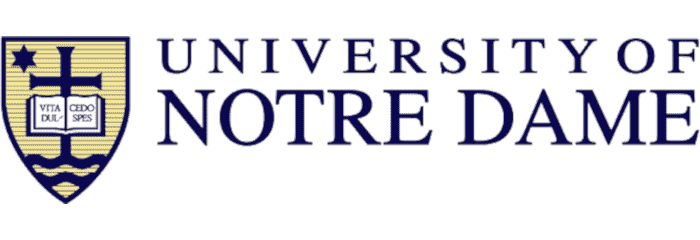 |
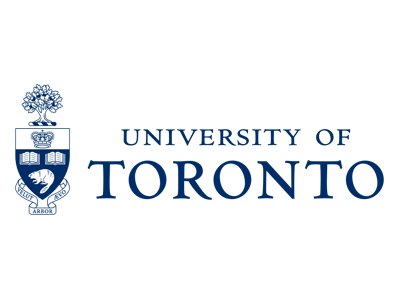 |
CALL FOR PAPERS:
Legal Personhood in Private Law – Notre Dame’s Global Gateway Campus in Rome
We are pleased to announce a call for papers for Legal Personhood in Private Law, edited by Christopher Essert (Toronto), Eva Micheler (LSE), and Paul Miller (Notre Dame).
Legal Personhood in Private Law aims to examine questions concerning the nature of legal personhood in private law. Questions to be addressed include: the concept of legal personhood as such; the relationship between private and public law in attributions of personhood and/or delineation of legal concept(s) of personhood; the kind(s) and salient characteristics of individuals and groups treated as legal persons in private law; hard cases in the attribution of legal personhood (e.g., liminal personhood); the doctrinal implications of, and wider functional significance held by, legal personhood in systems of private law; differences between civil and common law renderings of legal personhood; and the relationship between legal concept(s) of personhood and moral, theological, and/or cultural concepts of personhood. The volume will be composed primarily of solicited contributions, but we seek to include an additional two contributions through this call for papers.
Submissions should be a maximum of 12,000 words, inclusive of all text and footnotes. The submission should be accompanied by an abstract indicating how the paper fits into the themes identified above. The deadline for submission is January 31, 2025. Scholars at any stage, including graduate students, and those working in disciplines beyond private law theory, are encouraged to submit. Authors whose papers are selected will be invited to present their papers at a conference to be held at Notre Dame's Global Gateway Campus in Rome, Italy on November 6, 7, and 8, 2025. The Notre Dame Program on Private Law will arrange and pay for reasonable travel expenses, including 4 nights of hotel accommodations in Rome.
To submit a paper for consideration, please email it to Christopher Essert (chris.essert@utoronto.ca), Eva Micheler (e.micheler@lse.ac.uk), and Paul Miller (paul.miller@nd.edu).

CALL FOR PAPERS:
Oxford Studies in Private Law Theory Vol. IV
Oxford University Press is pleased to announce a call for papers for Volume IV of Oxford Studies in Private Law Theory, edited by Paul Miller (Notre Dame) and John Oberdiek (Rutgers).
Oxford Studies in Private Law Theory is a biennial forum for some of the best new work in private law theory by scholars from around the world. The series publishes exceptional work exploring the full range of private law domains and doctrines—including contract, property, tort, and fiduciary law, as well as equity, unjust enrichment, and remedies—and employing diverse methodological approaches to individual areas of private law as well as to private law in general.
Submissions should be approximately 12,000 words, inclusive of footnotes. The deadline for submission is 15 January 2025.
All papers provisionally accepted will be workshopped at the National University of Singapore in August 2025. The Rutgers Institute for Law and Philosophy and the National University of Singapore will cover the expense of participants’ travel and accommodation. Thanks to the generosity of the Notre Dame Program on Private Law, accepted papers will be published open access by OUP.
To submit a paper for consideration, please email both John Oberdiek at oberdiek@rutgers.edu and Paul Miller at paul.miller@nd.edu.

INTERNATIONAL JOURNAL
FOR THE SEMIOTICS OF LAW
SPECIAL ISSUE
On Ricoeur: Justice, Hermeneutics, Responsibility, and Personal Identity
Volume 38 (2025)
Guest Editors – Peter Langford & Rafe McGregor
(Edge Hill University)
The work of Paul Ricoeur is animated by an insistent philosophical engagement with the position and orientation of human existence. An integral aspect of Ricoeur’s philosophical engagement concerns the relationship between individual existence, as a question of personal identity, and co-existence, as a question of social life. This engagement is shaped by a reflexive interpretation – a hermeneutics – of these aspects of human existence in a manner that has been termed a ‘hermeneutics of the human condition’ (Domenico Jervolino, Paul Ricoeur, Une herméneutique de la condition humaine, 2002).
The presence of law within the framework of this reflexive interpretation arises through the question of justice, which situates law in relation to both personal identity and human co-existence. The passage from the individual to human co-existence becomes that of the interconnection between responsibility and justice. In this manner, law becomes a domain or region of reflection in and through its connection to morality, ethics, and politics. Law is a distinct, but neither self-contained nor self-sufficient, domain whose distinctiveness is to be considered through its interconnection with these other domains. The position accorded to law is thus the expression of a wider, reflexive reconfiguration of the interrelationship of all these domains.
The reconfiguration results from an overarching process of reflexive interpretation that involves the selection of, and interpretative orientation to, the texts which form the material or corpus for this overarching process. It is in this selection and interpretation that the distinctive character of Ricoeurian hermeneutics is elaborated, the question of justice raised, and the domain of law accorded its particular position. We invite proposals that explore one or more of these themes of this special issue on the work of Paul Ricoeur.
Submissions
Submissions should be addressed to: Peter Langford (langforp@edgehill.ac.uk) and Rafe McGregor (mcgregor@edgehill.ac.uk).
- Abstracts of 300 words (maximum) by 1 January 2025.
- After selection, final papers (10,000 words maximum, including endnotes and references) should be submitted by 1 June 2025.
Submission guidelines
https://link.springer.com/journal/11196/submission-guidelines
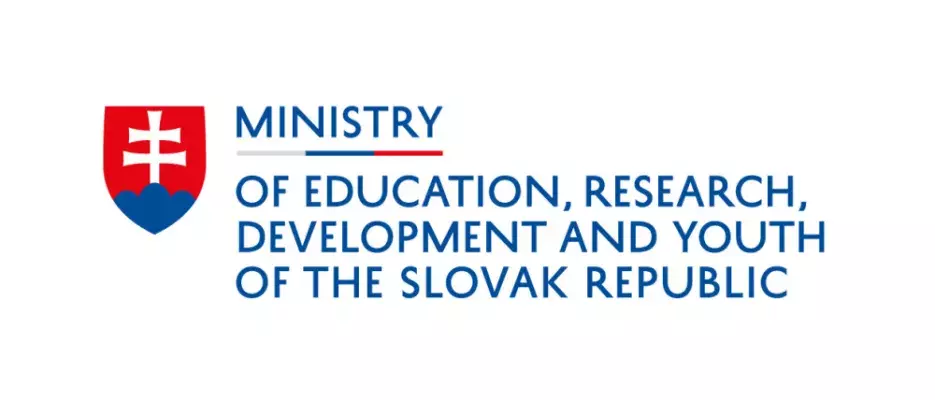
NATIONAL SCHOLARSHIP PROGRAMME OF THE SLOVAK REPUBLIC
to support mobility
New call for applications for scholarships for study stays, research, artistic residencies and guest lectures in the academic year 2024/2025 !
Deadline for applications: 31 October 2024
Applications for scholarships can be submitted online via: www.stipendia.sk or www.scholarships.sk.
The National Scholarship Programme of the Slovak Republic aims to support the mobility of foreign students, doctoral students, academics, researchers and artists by encouraging them to stay at universities and research units in Slovakia.
Detailed information on the programme is available on the official programme website www.stipendia.sk or www.scholarships.sk.

London, UK | September 2–4, 2024
https://www.ieee-csr.org
The increasing proliferation of information and communication technologies (ICT) in our lives, has facilitated connectivity growth between distinct parts of our world. Various types of data are continuously streaming across many boundaries in the world with different models, policies, and purposes. This data is usually analyzed or stored on edge or gateway devices, which have limited capabilities and are vulnerable to sophisticated attacks. Recent cyberattacks dangerously target a broad array of computing systems, varying from data centers and personal machines to mobile devices and industrial control systems. There is a growing need for new methodologies, tools, and techniques, capable of extracting, preserving, and analyzing different evidence trails in various networked systems and services. Additionally, there is also a growing need for research into new systems that are capable of analyzing network traffic, netflows, and systems logs. Satisfying these demands will aid in reconstructing the timeline of the cyber-crime/attack under investigation and possibly, the identification of the potential actor(s). Cyber forensics and threat investigations have rapidly emerged as a new research field to provide the key elements for maintaining security, reliability, and trustworthiness of the next generation of emerging technologies. Moreover, new frameworks are required to collect and preserve potential evidential data in suitable and timely manners as well. To guarantee proper cyber-defenses and strategies against the expanding landscape of criminal activities as well as rapidly advancing emerging technologies.
The workshop is held in conjunction with the IEEE CSR 2024 conference as a , during September 2–4, 2024.
Paper submission deadline: May 3, 2024 AoE
Authors’ notification: June 5, 2024 AoE
Camera-ready submission: June 14, 2024, AoE
Early registration deadline: July 20, 2024 AoE
Conference dates: September 2-4, 2024
Prospective authors are encouraged to submit previously unpublished
contributions from a broad range of topics, which include but are not limited to the following:
› Forensics and threat investigations in P2P, cloud/edge, SDN/NFV, VPN, social nets
› Forensics and threat investigations in IoT, smart tech (car, home, city), e/m-health
› Forensics and visualization of big data
› Tools and services for cyber forensics and threat investigations
› Attack detection, traceback, attribution in emerging technologies
› Malware analysis and attribution
› Methods for reconstruction of digital evidence in emerging technologies
› Security and privacy in P2P, cloud/edge, SDN/NFV, VPN, social nets
› Security and privacy in IoT, smart tech, (car, home, city)
› Open source intelligence (OSINT)
› Dark web Investigations
› Digital evidence extraction/analysis using AI/ML and data mining
› Data exfiltration from networked devices/services (e.g. cyber-physical systems, IoT)
› Large-scale investigations and ML for the analysis of intelligence data sets and logs
Submissions:
Submissions that evaluate existing research results, by reproducing experiments, are welcomed.
The CSR CFATI workshop will accept high-quality research papers presenting strong theoretical
contributions, applied research and innovation results obtained from funded cyber-security and resilience projects, and industrial papers that promote contributions on technology development and contemporary implementations.
Submitted manuscripts should not exceed 6 pages (plus 2 extra pages, being subject to overlength
page charges) and should be of sufficient detail to be evaluated by expert reviewers in the field.
Accepted papers will be submitted for inclusion into IEEE Xplore subject to meeting IEEE Xplore’s
scope and quality requirements.
Detailed information about paper submission and guidelines for
authors can be found at the workshop’s website https://www.ieee-csr.org/2024-csr-cfati/.
Contact us:
Ahmed Elmesiry (UK)
a.elmesiry@londonmet.ac.uk
ZAWACKA - NAWA
exchange programme
for students and scientists as part of bilateral cooperation
(offer for outcoming students and scientists)
The aim of the Programme is to deepen international academic cooperation through the arrival of students, doctoral students, academic teachers and scientists to Polish higher education and science institutions, on the basis of international agreements concluded between Poland and the partner countries indicated in the announcement. Moreover, the stays will allow for improving the competences of participating representatives of the academic community.
The programme is implemented in cooperation with institutions from countries covered by the agreements, hereinafter referred to as partner institutions.
Thematic scope of activities implemented under the Programme
Visits are eligible under the Program for the following purposes:
- completing full or partial studies at universities supervised by the Minister of Science and Higher Education;
- education at a doctoral school;
- scientific stay, e.g.: scientific internship, study visits, obtaining materials for scientific work, conducting teaching classes at the host center, other forms of scientific or academic activity related to the implementation of studies, doctoral thesis or scientific work.
Deadline for submission of applications
Applicants shall register (submit their applications) in the Agency's ICT System by the date indicated in the message from the Agency, sent by email,
but no later than September 30, 2024.
Form of application submission
Only in electronic form in the Agency's ICT System.
Coordinator at the Polish National Agency for Academic Exchange
Department of Programmes for Students
Bilateral Programmes Unit
For additional information, please contact (working days, from 9:00 a.m. to 4:00 p.m.):
e-mail: wymiana@nawa.gov.pl
telephone number:
+48 451 058 639
+48 451 058 635
NATIONAL SCHOLARSHIP PROGRAMME OF THE SLOVAK REPUBLIC
to support mobility
New call for applications for scholarships for study stays, research, artistic residencies and guest lectures in the academic year 2024/2025 !
Deadline for applications: 30 April 2024 at 16:00 CET.
Applications for scholarships can be submitted online via: www.stipendia.sk or www.scholarships.sk.
The National Scholarship Programme of the Slovak Republic aims to support the mobility of foreign students, doctoral students, academics, researchers and artists by encouraging them to stay at universities and research units in Slovakia.
Detailed information on the programme is available on the official programme website www.stipendia.sk or www.scholarships.sk.
The next application deadline is: 31 October 2024 and will apply for stays carried out in the summer semester of the academic year 2024/2025.
[Offer sent by Prof. Anna Jurkowska-Zeidler]
Call for Papers for the 2024 ELI Young Lawyers Award
For the eighth year, the European Law Institute seeks to give voice to young lawyers through its Young Lawyers Award competition.
The ELI Young Lawyers Award was established in 2016 with the goal of giving the young European legal community a means of making valuable suggestions for the development of European law while fulfilling ELI’s core mission of improving the quality of law in Europe.
Interested young lawyers are invited to submit their papers by 30 April 2024.
Candidates stand the chance to win six prizes:
- Extract of paper published in the ELI Newsletter and on ELI’s website
- Best efforts to get the paper published in UNIDROIT’s Uniform Law Review, an Oxford University Press Journal
- Presentation of the paper at the ELI Annual Conference (costs up to EUR 750 covered)
- EUR 750 cash
- 5-year ELI membership
- Up to 3 months paid internship at a law firm affiliated with Interleges
For entry requirements, please consult the following page.
Fernand Braudel Senior Fellowships
Fernand Braudel Senior Fellowships provide a framework for established academics with an international reputation to pursue their research at the EUI.
Fellowships last for up to ten months in one of the EUI's four Departments which in turn invite fellows to participate in departmental activities (seminars, workshops, colloquia, etc.).
Fellows, while in residence at the EUI, are encouraged to make contact with researchers sharing their academic interests, may be involved in the teaching and thesis supervision tasks of EUI professors, and associated with one of the research projects being carried out at the EUI.
There are two deadlines for applications in 2024: 3 April 2024 and/or 30 September 2024
- Department of Law: considers applications only for the deadline 3 April 2024 for fellowships during the following academic year (within the period from 1 September 2024 to 30 June 2025). While longer stays are welcomed, the department is only able to provide funding of one or two months to some of the successful applicants, but provides office space and full library privileges for the entire duration of stay.
More information: Fernand Braudel Senior Fellowships • European University Institute (eui.eu)
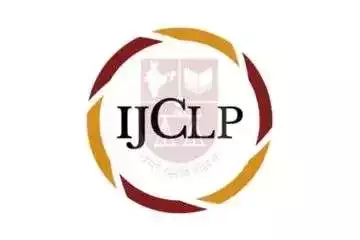
CALL FOR PAPERS
"International Journal on Consumer Law and Practice" (IJCLP) [Vol XII, 2024]
indexed in SCOPUS and HEIN ONLINE
Themes:
- Empowering Consumers through clean energy transitions
- Protect Consumers in Food crisis now and in future
- Consumer Journeys in digital finance with Mobile Money
- Consumer voices in the G20
- Consumer Protection Combating Greenwashing
- Electronic Enforcement of Consumer Law
- Durability and right to repair: A Consumer Right
- Digital Future: Building trusted E-Commerce & Generative AI
The themes listed above are merely indicative and not exhaustive. The Journal highly appreciates submission on any contemporary issues in the field of Consumer Protection and its legal interactions.
Deadline:
The submissions for the journal are accepted on a rolling basis round the year.
However the last date for submission of the paper for Vol. XII, 2024, is 31st March 2024.
Submission Guidelines:
Word limit: Articles including abstract (6,000-8,000 words inclusive of footnotes). Case Comment, Legislative Briefs (2,500-3,000 words inclusive of footnotes). Book Review (2,000 words inclusive of footnotes).
How to Submit?
Only electronic submissions are accepted. Kindly submit your submission on this Submission Form along with the covering letter, and resume on or before 31st March 2024 for it to be considered for volume XII.
Contact:
Please feel free to contact us at ijclp@nls.ac.in for any queries.
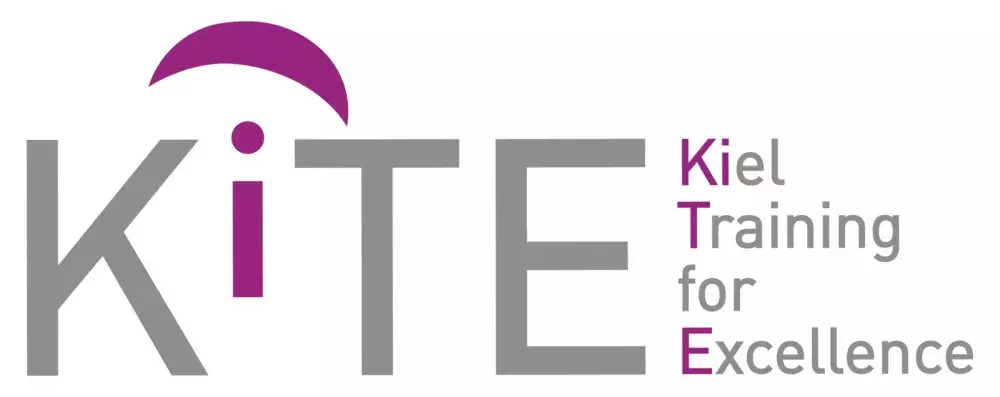
KiTE – Kiel Training for Excellence
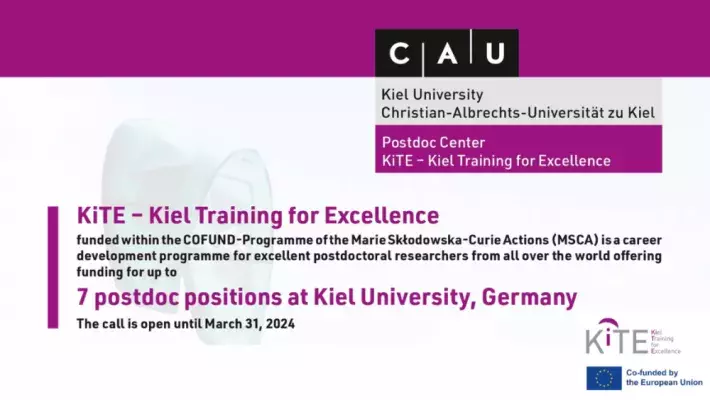
Christian-Albrecht University in Kiel, in cooperation with the Marie Skłodowska-Curie Actions (MSCA) program, invites you to participate in KiTE - Kiel Training for Excellence. KiTE is a development improvement program for scientists from around the world who are interested in conducting independent, interdisciplinary research related to one of the four priority research areas at the University of Kiel.
Conditions for submitting applications:
Applicants may be postdoctoral researchers of any nationality who have no more than 4 years of research experience since completing their PhD and meet the MSCA mobility principle.
Deadline for registration: March 31, 2024
More details at:
https://sea-eu.ug.edu.pl/%ef%bb%bfkite-kiel-training-for-excellence/
[Offer sent by Prof. Anna Jurkowska-Zeidler]
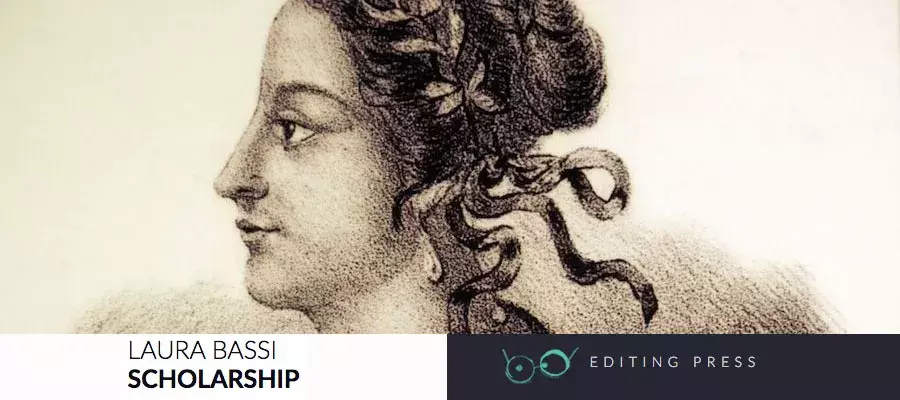
LAURA BASSI SCHOLARSHIP
The Laura Bassi Scholarship was established in 2018 by Editing Press.
The scholarship was established to provide editorial assistance to postgraduate students and young researchers whose research focuses on important and somewhat "neglected" topics of study within their disciplines. The scholarships are open to any discipline and are awarded three times a year: in April, August and December.
The deadline for submitting applications in the next edition is March 24, 2024.
More information about this initiative and the extraordinary figure of Laura Bassi, answers to frequently asked questions, a list of program winners from previous years - can be found on the website: https://editing.press/bassi.php

CALL FOR SUBMISSIONS
Journal of International Law and Comity (JILC)
Volume 4 : Number 2
Journal of International Law and Comity (JILC) is the flagship journal of the Centre for Peace, Justice and International Law (Weera Centre). It is a double peer-reviewed, open-access, biannual journal premised on the principle that scholarship should be generated on high ideals of positive change in public international law.
With advisors steering us from across the globe, we invite submissions for our forthcoming Issue 4:2 scheduled for publication in May 2024. Contributions that engage with pressing questions of human rights, environment, disarmament, peace, justice, and equity in international law are particularly welcome. Authors can explore any area or aspect of international law, provided it has a significant human or non-human impact. Those who do not come from a law background but intend to write on something ancillary to international law are also encouraged to contribute after getting in touch with the editor through email and sharing broad outlines of the proposal.
General Guidelines:
Categories:
- Article (5000-8000 words including footnotes)
- Case Comment (3500-4000 words including footnotes)
- Book Review (850-1200 words, footnotes only where necessary)
All manuscripts must be original and unpublished.
Co-authorship is allowed.
After the first publication in JILC, permission must be obtained for any subsequent publication.
Broad pre-editing format:
- Heading: Times New Roman | Font Size 14 | Roman Numbering
- Text: Times New Roman | Font Size 12 | Line Spacing 1.5
Citation style: The Bluebook: A Uniform System of Citation (20th Edition). Authors are strongly suggested to go through past issues and follow the editorial format.
Correspondence: Editor, Journal of International Law and Comity; E-mail- weerajilc@gmail.com
Last Date for Submission:
10 March 2024
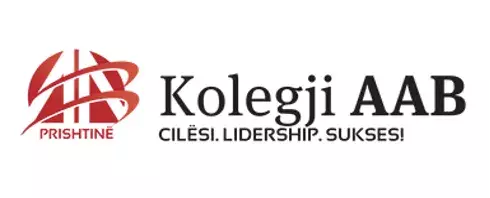
"Global Minds, Infinite Horizons: Celebrating Partnerships in Higher Education Worldwide"
AAB COLLEGE INTERNATIONAL STAFF WEEK IN KOSOVO
13th–17th MAY, 2024
It is with great pleasure that we extend an invitation to our colleagues and partners from the region and beyond to participate in the International Week at AAB College in Prishtina, Kosovo. The event will take place from 13th to 17th May 2024.
We are excited to bring together academic professionals and experts from diverse backgrounds to engage in a week of intellectual exchange, cultural enrichment, and social interactions.
The International Week will look forward to featuring a series of lectures/workshops that are tobe conducted by distinguished colleagues from partner universities, covering a wide range of subjects and disciplines. These sessions aim to foster knowledge sharing, collaboration, and the exploration of new ideas.
In addition to the academic program, we will enjoy various cultural and social activities to provide you with the opportunity to experience the rich cultural heritage of Kosovo and foster international friendships. These activities will include cultural performances, city and country tours, and social events to create a vibrant and inclusive atmosphere.
We believe that your presence at the International Week will greatly contribute to the success of the event and enhance the overall experience for all of you. We look forward to welcoming you and your delegation to AAB College and Prishtina for this enriching and collaborative endeavor.
To facilitate your participation, kindly find attached the registration form that includes essential details for your convenience.
The registration deadline is 10 March 2024
• Registration form: https://forms.gle/2XxsmPoAhgnvHane9
• The language of the event is English.
• Participation in the event is free of charge but other travel and living costs need to be covered by participants themselves. If you are eligible for Erasmus+ funding, please contact International Offices at your home institutions.
Should you have any inquiries or require further information, please do not hesitate to contact meat: venera.llunji@universitetiaab.com
The staff at AAB College is looking forward to seeing you in Kosovo!
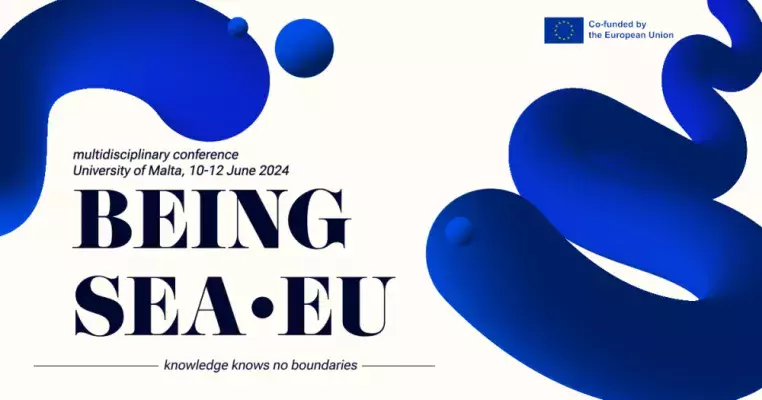
International Conference Being SEA-EU
Dear Scientists and Students,
On behalf of the SEA-EU partner universities, we encourage you to participate in the international conference 'Being SEA-EU', the first edition will be held at the University of Malta on June 10-12, 2024. Abstracts for the event can be submitted until February 23rd this year, and the authors of the best proposals will receive funding for full-time participation in the conference.
The event will be an excellent opportunity to present research achievements and exchange experiences among the communities of 9 universities in the SEA-EU alliance of European universities. Students and scientists from Gdańsk, Cadiz, Brest, Kiel, Split, Malta, Algarve, Naples and Bodø will share their accomplishments. The conference aims to present research results, promote European values and sustainable development included in the SEA-EU missions.
You can submit abstracts in one in one of four categories:
- technology, engineering, mathematics, medicine/health sciences,
- art, humanities and social sciences (economics, sociology, anthropology, etc.),
- migration and human rights,
- interdisciplinary category.
The organizers planned to present the topics in form of a paper (stationary/online) and a poster session. The Conference Scientific Committee will assess all applications. The SEA-EU project will finance trips and presentations by the authors of the best abstracts.
The deadline for submitting applications is February 23rd, 2024 March 1st, 2024 [EXTENDED CALL FOR ABSTRACT]
You can find a detailed description of the event and conditions of participation at https://sea-eu.org/being-sea-eu-conference/
Join us and share your passion for learning!
The 2024
Law and Finance of Private Equity and Venture Capital
Conference
The DFG LawFin Center at Goethe University in Frankfurt, the LSE Law School, the Faculty of Law of the University of Oxford, and the Institute for Law & Economics at the University of Pennsylvania are pleased to announce the convening of ‘The Law and Finance of Private Equity and Venture Capital’ conference on June 12-13, 2024, at Penn Carey Law School in Philadelphia.
Conference organizers seek to attract research of the highest scholarly quality in the fields of law and finance related to private equity (PE) and venture capital (VC), broadly defined, to be presented at the Conference. We invite researchers to submit either
(1) a working paper that will not yet be published at the time of the Conference, or
(2) an earlier-stage research project in the form of an extended abstract, via email to research@lawfin.uni-frankfurt.de with the subject ‘2024 Conference Submission’ by February 29, 2024.
Those who hold a full-time academic appointment but have not yet received tenure as of the submission are especially encouraged to submit. The organizers will select papers and assign each of them one or more discussants chosen from among distinguished practitioners, industry representatives, policymakers, finance scholars, economists, and legal scholars.
There will also be ample time for a general discussion of each paper among conference participants. Authors of accepted submissions will receive a notification by March 29, 2024, and will have until April 5, 2024 to confirm their participation.
Further information can be found on the ECGI website here.
The conference organizers are Luca Enriques (Oxford and ECGI), Jill E Fisch (Penn Carey Law and ECGI), Suren Gomtsyan (LSE Law School), Geneviève Helleringer (Essec Business School Paris, University of Oxford, and ECGI), Casimiro A Nigro (LawFin, Goethe University Frankfurt), Elizabeth Pollman (Penn Carey Law, University of Pennsylvania and ECGI), Tobias H Tröger (LawFin, Goethe University Frankfurt, SAFE and ECGI), and Simon Witney (LSE Law School).
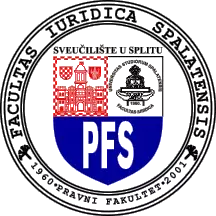
SPLITLAW 2024
The Faculty of Law, University of Split (CROATIA) has the honour to announce the Call for Abstracts for the “International Doctoral and Postdoctoral Conference in the Law and Law Related Fields – SPLITLAW 2024”, which will be held on 10 May 2024 as a hybrid event: on-site (in-person) participation (Faculty of Law, University of Split, Domovinskog rata 8, 21 000 Split, Croatia); and online participation (via MS Teams).
The conference topics will be focused, but not limited, to legal aspects of economic and social development and the challenges of the modern world. We invite You to submit abstracts on the following or related topics:
- Legal consideration of economic contexts and application of legal solutions in practise;
- Improvement of theoretical and practical legal problem areas;
- Challenges of globalisation and Europeanisation of national law;
- Public and Private Law crossing paths in the EU;
- Challenges in maintaining democracy and the rule of law in the EU;
- European approach to digital transformation, digital economy and society - benefits and potential risks of AI technology;
- Challenges and the future of social policy in the EU;
- Cross-border labour mobility as the foundation of the EU market;
- Effective protection of the EU's external borders – prospects and new challenges;
- Cross-border electronic data exchange in the area of judicial co-operation in civil and criminal matters;
- Monitoring of traders and legal protection of consumers;
- Confidence in the judiciary – independence and efficiency of the conduct of judicial proceedings in the context of economic crime;
- Legal certainty and efficiency of public administration - improvement of the investment environment;
- Legal and economic aspects of corporate governance - European companies as a stimulating business environment in the EU;
- Legal and regulatory challenges and barriers to smart, sustainable and inclusive growth and enterprise;
- Corporate governance, financing and auditing.
The official language of the conference is English.
The Invitation Letter is in the Attachment of this mail.
The Application form should be completed via the following link: https://rb.gy/zx2lmz.
CALL FOR ABSTRACTS:
An abstract (up to 500 words with no more than 5 keywords) should be submitted with the application form.
The author of the abstract/paper can only be a PhD student/PostDoc researcher in law or law related fields.
One author can submit a maximum of one (1) abstract.
It is not possible to submit/publish an abstract/paper in co-authorship.
Accepted abstracts will be published in the printed version of the Book of Abstracts.
IMPORTANT DATES:
22 February 2024 - Deadline for completing the application form and submitting the abstract
29 February 2024 - Notification of acceptance of the abstract
7 March 2024 - Deadline for registering to participate in the conference on-site/online
14 March 2024 - Deadline for paying the conference fee
4 April 2024 - Deadline for submitting the full paper
10 May 2024 - Conference date
For any questions or further information about the conference you can send an e-mail to: splitlaw2024@pravst.hr
University of Oslo
| Attachment | Size |
|---|---|
| Christ staff week | 22.43 MB |
| information-letter-27022026.docx | 2.48 MB |






